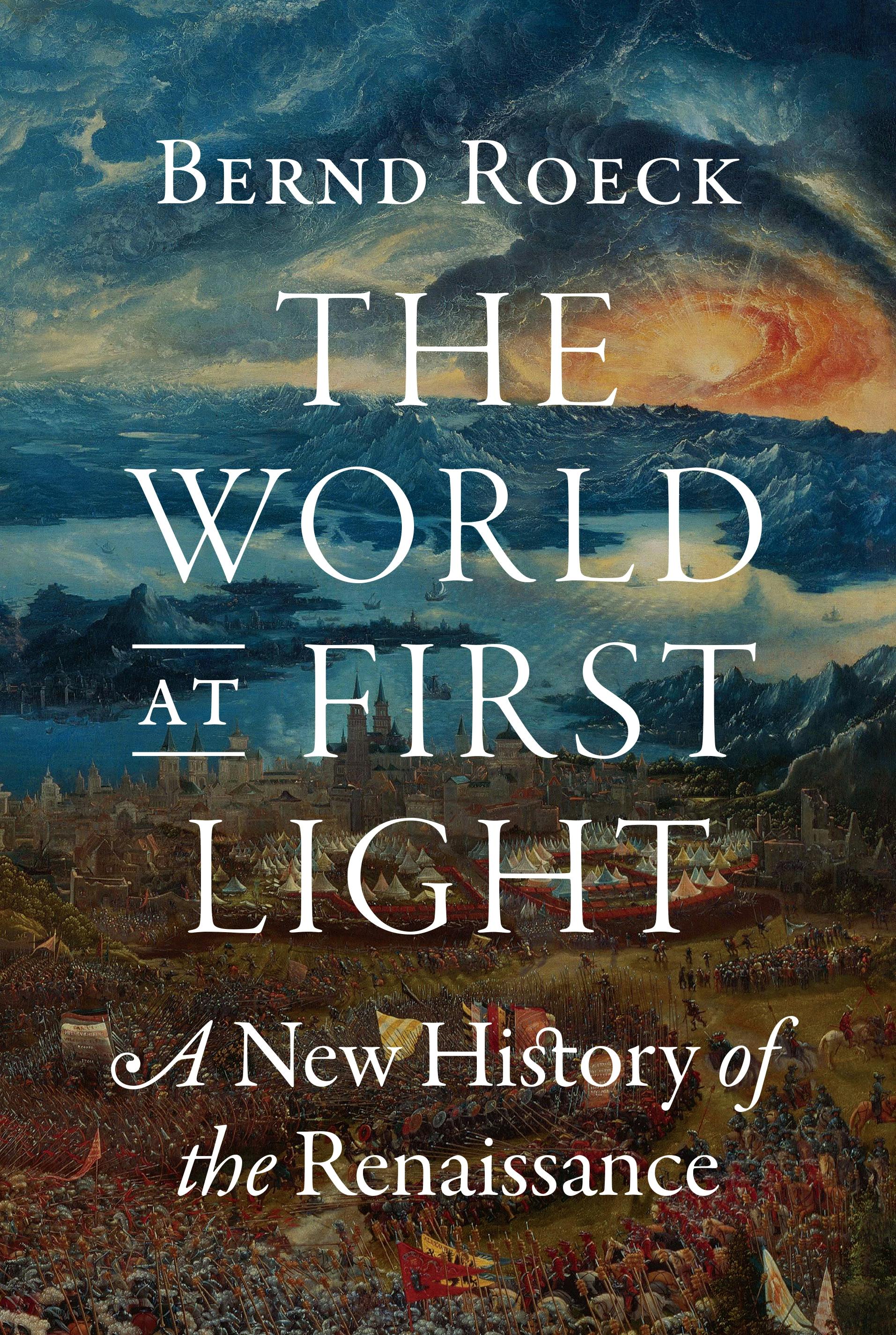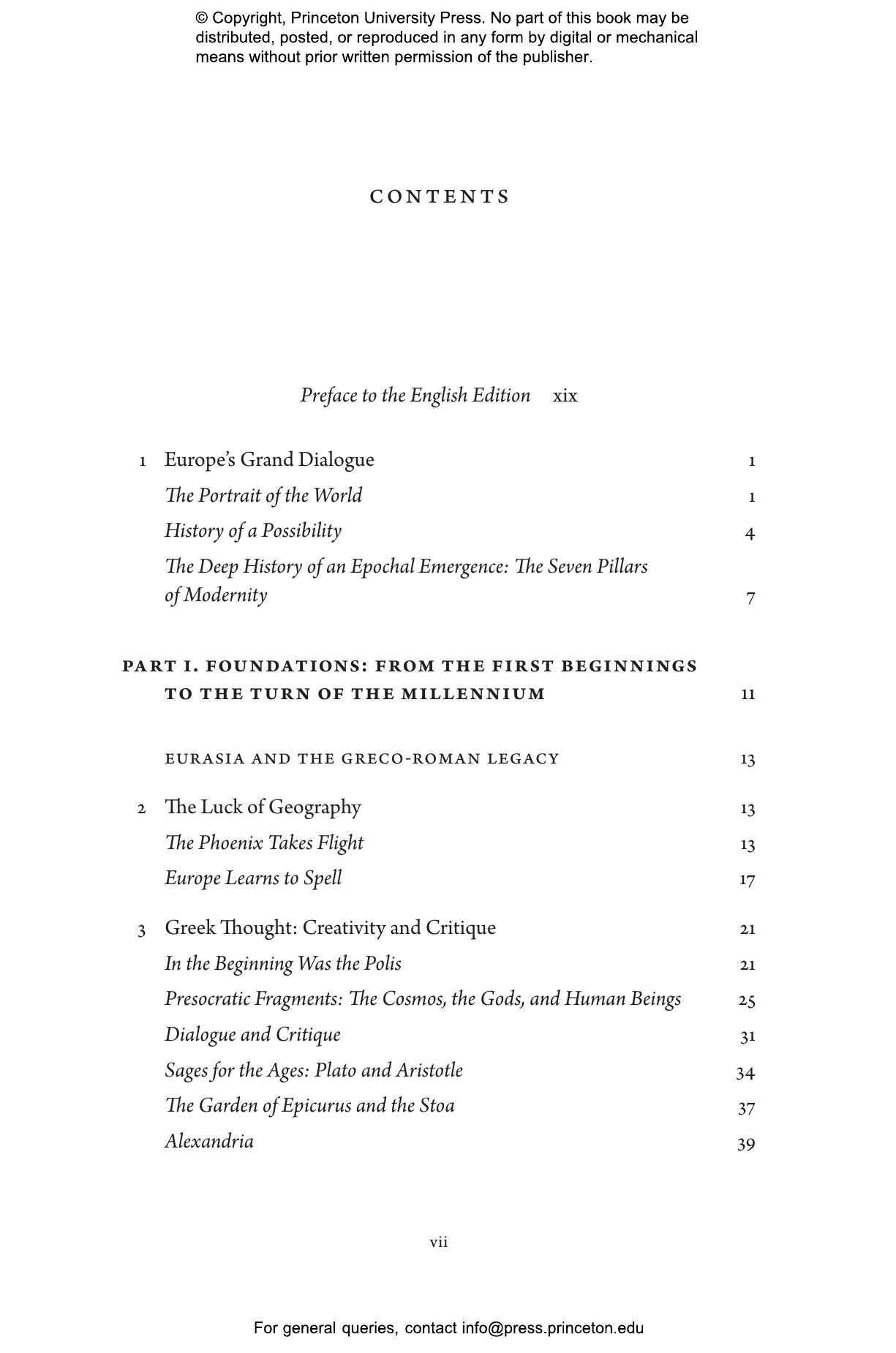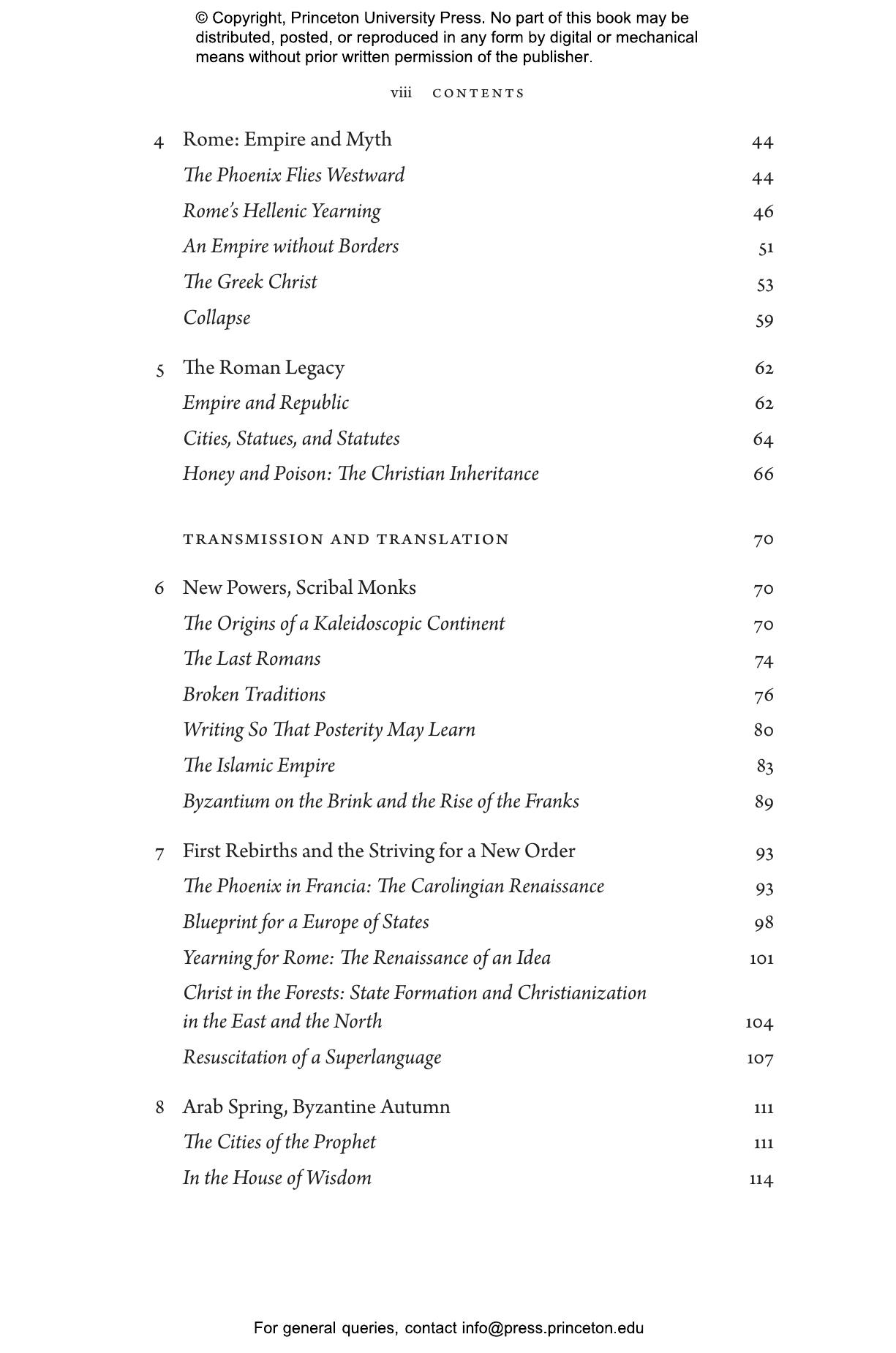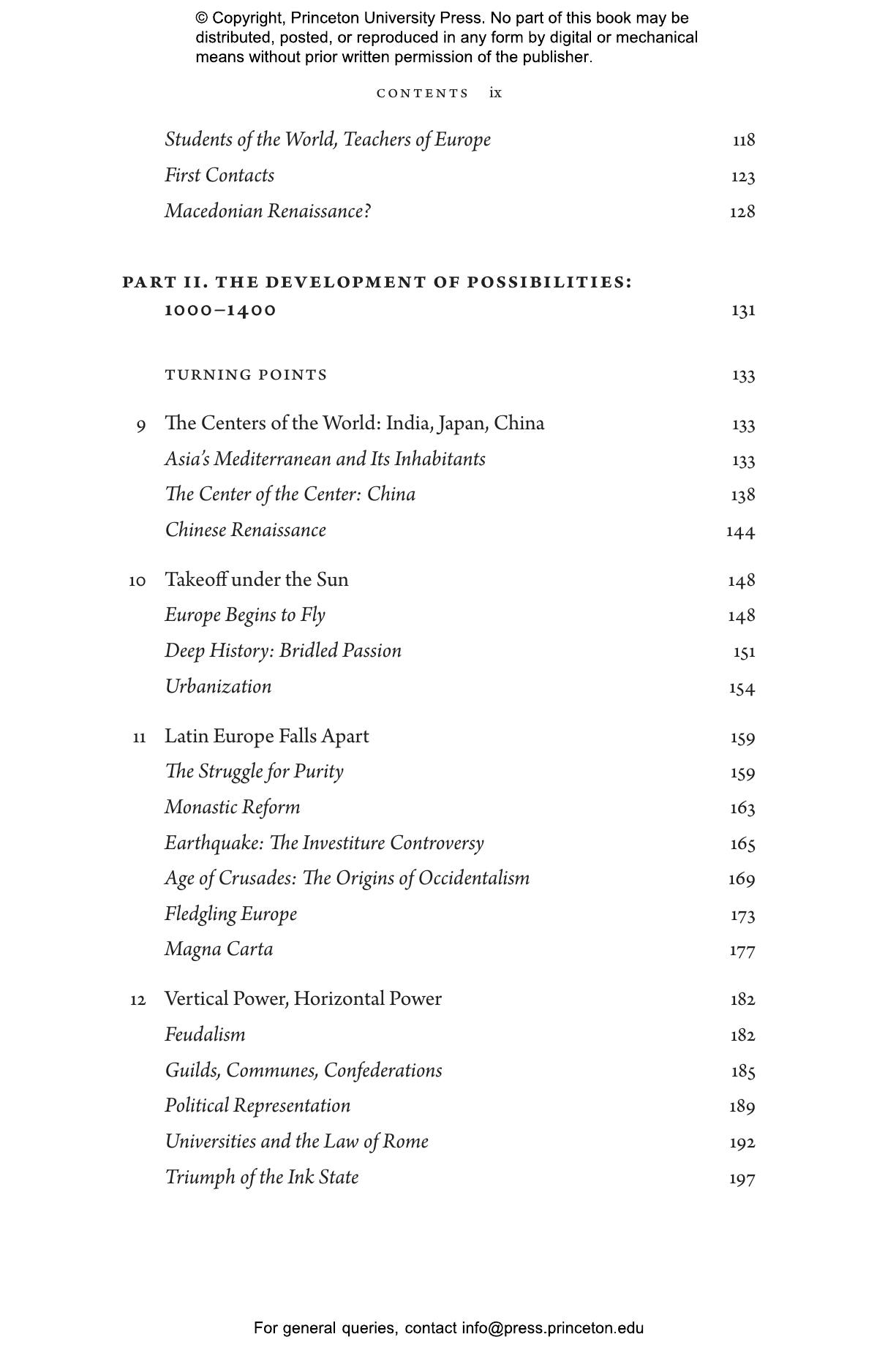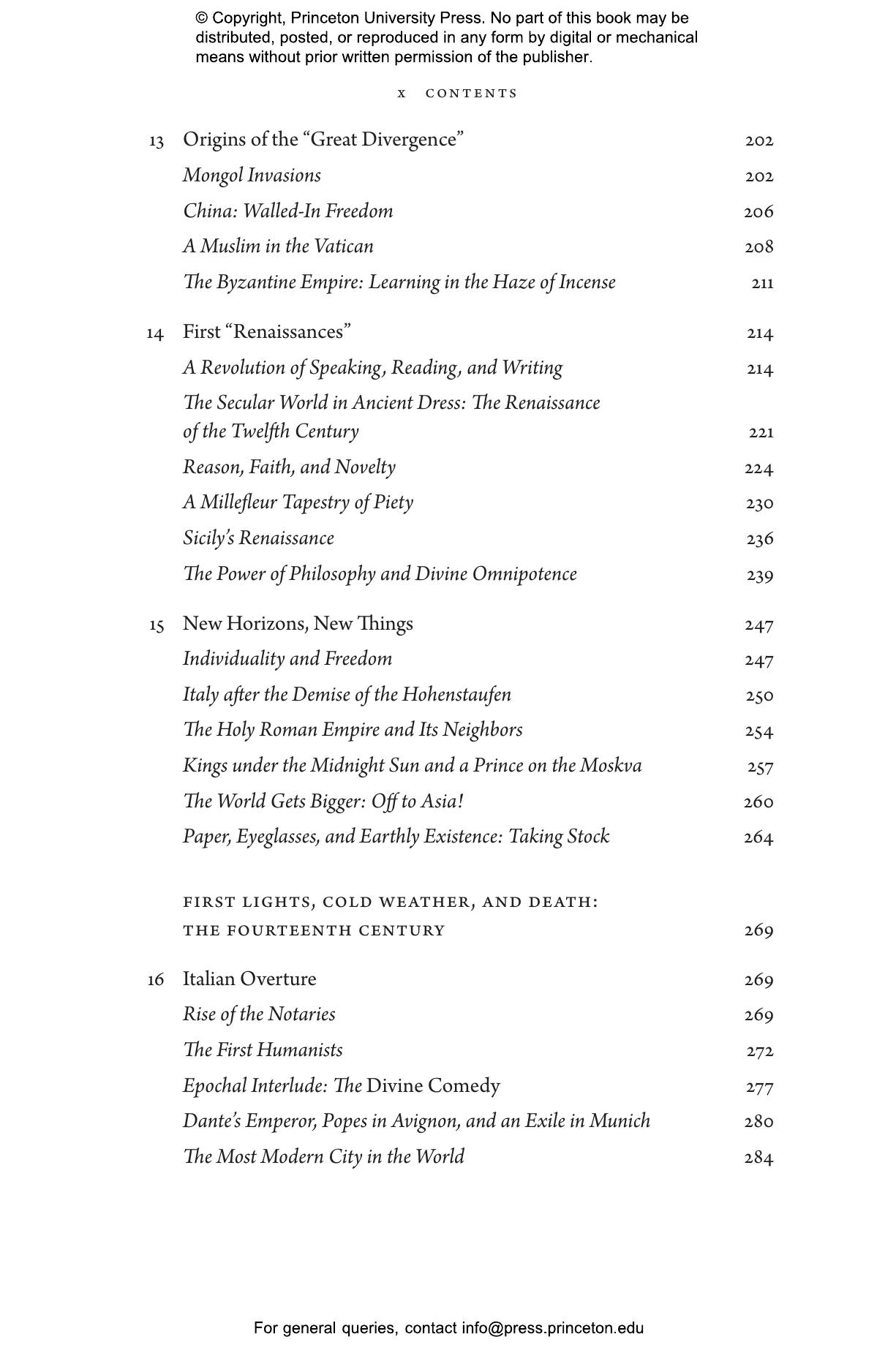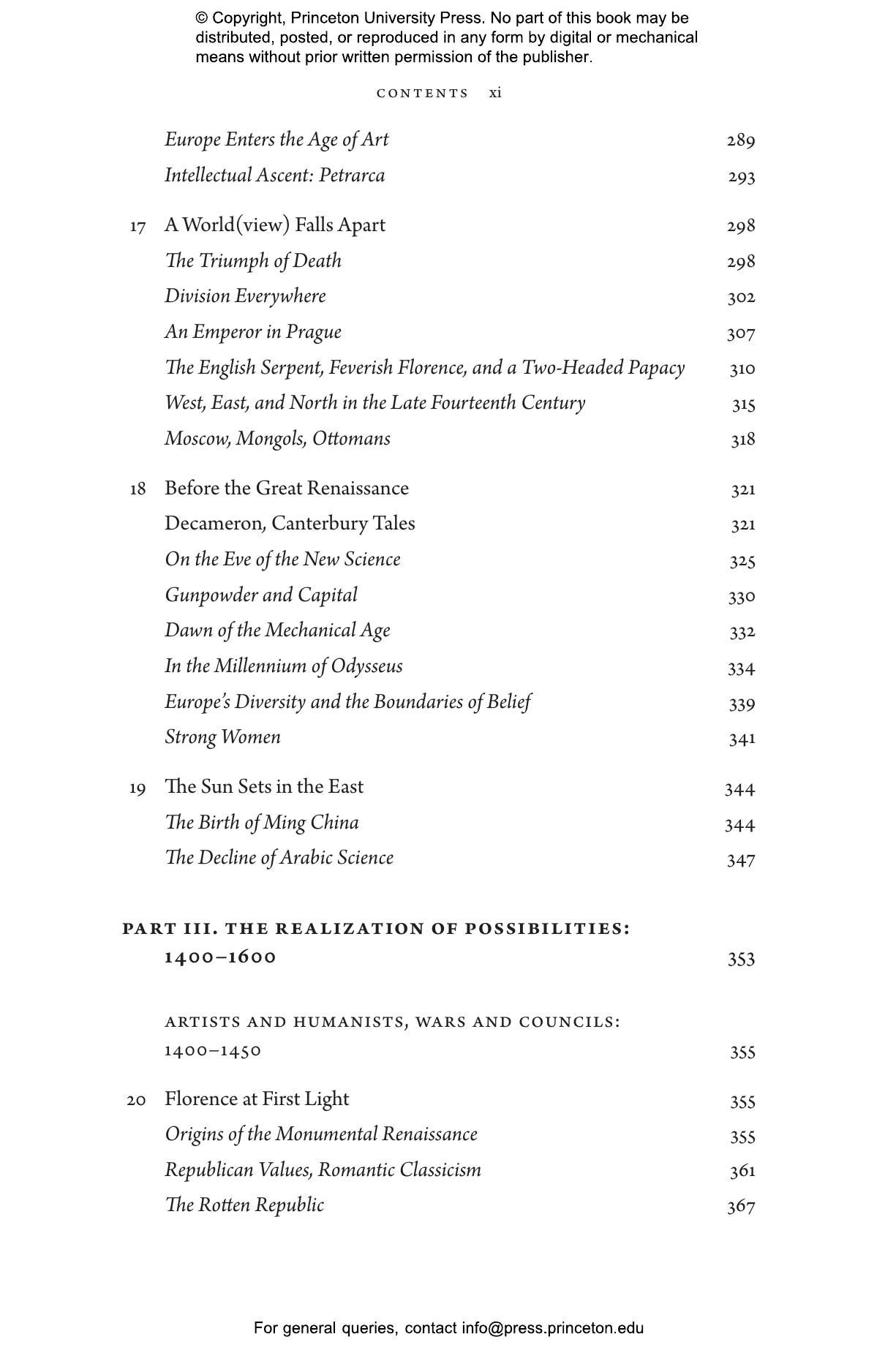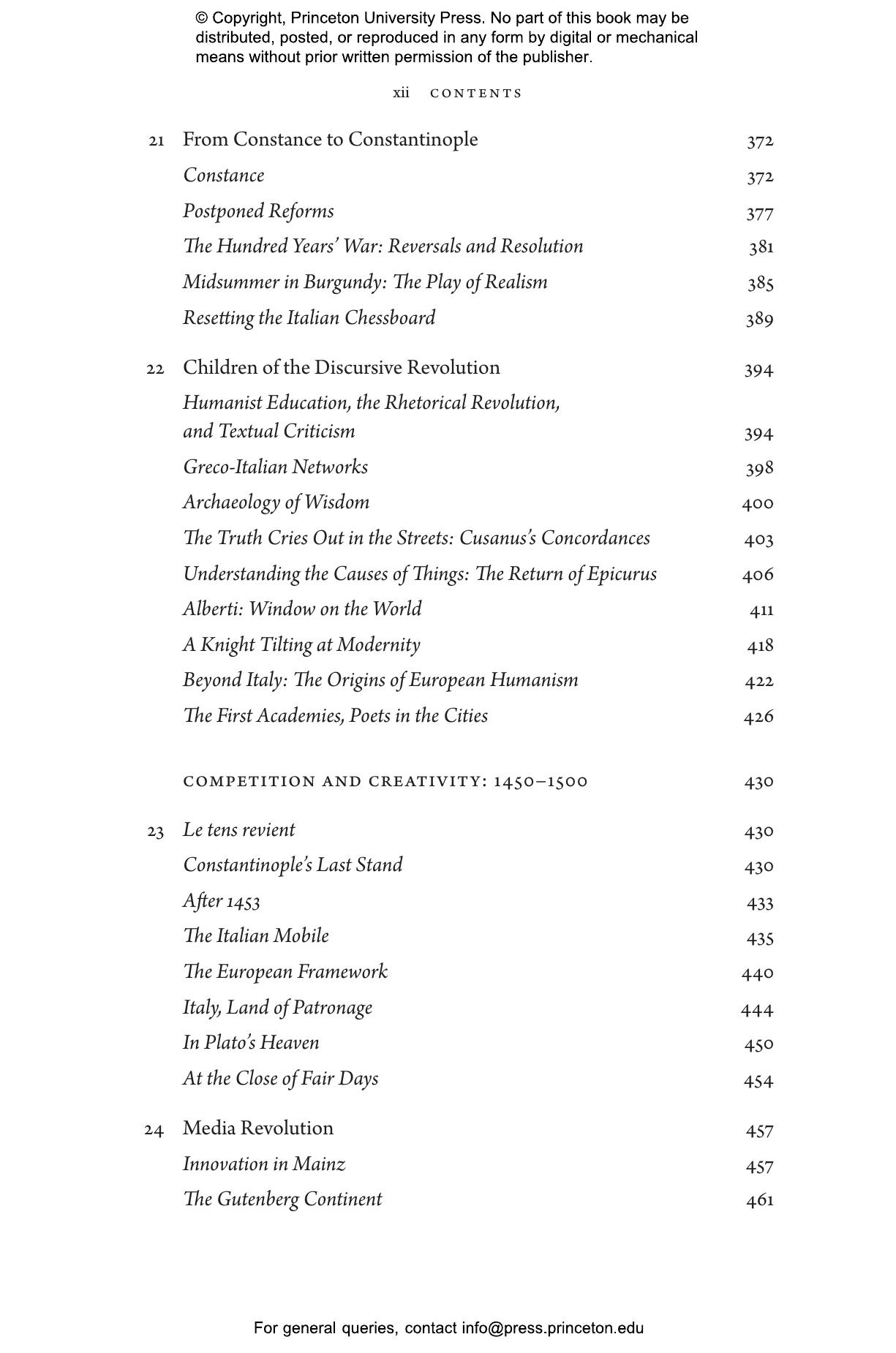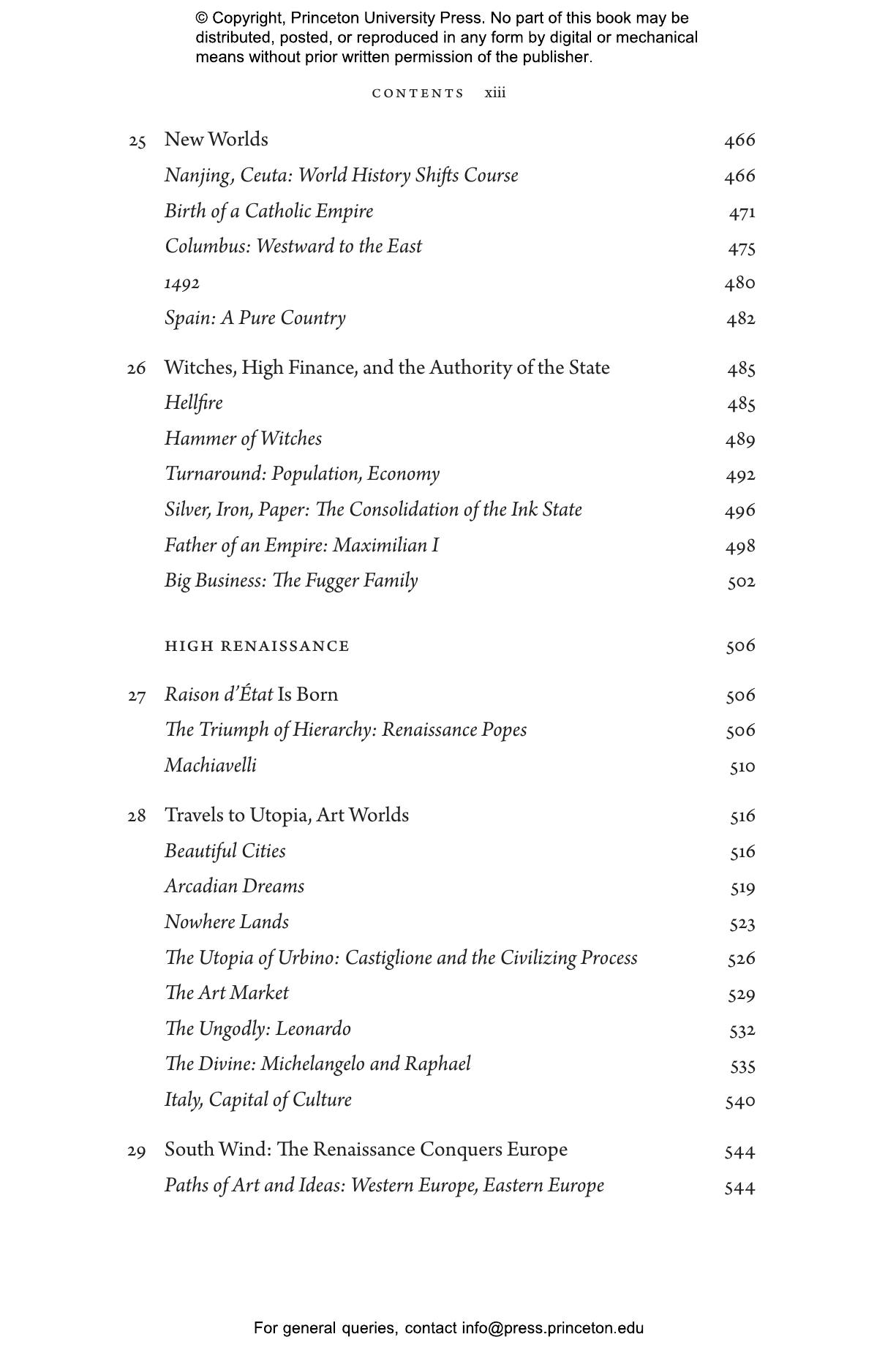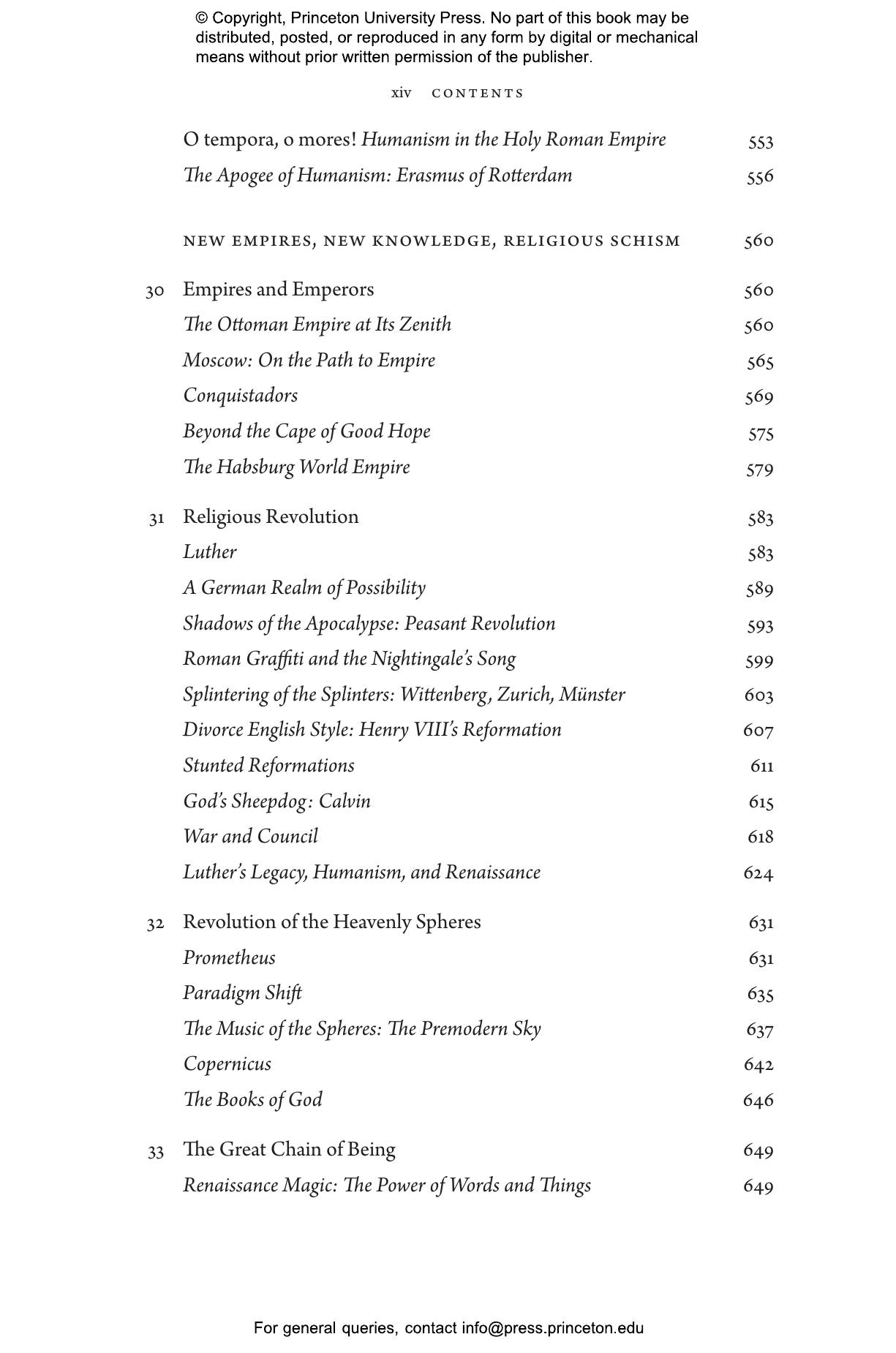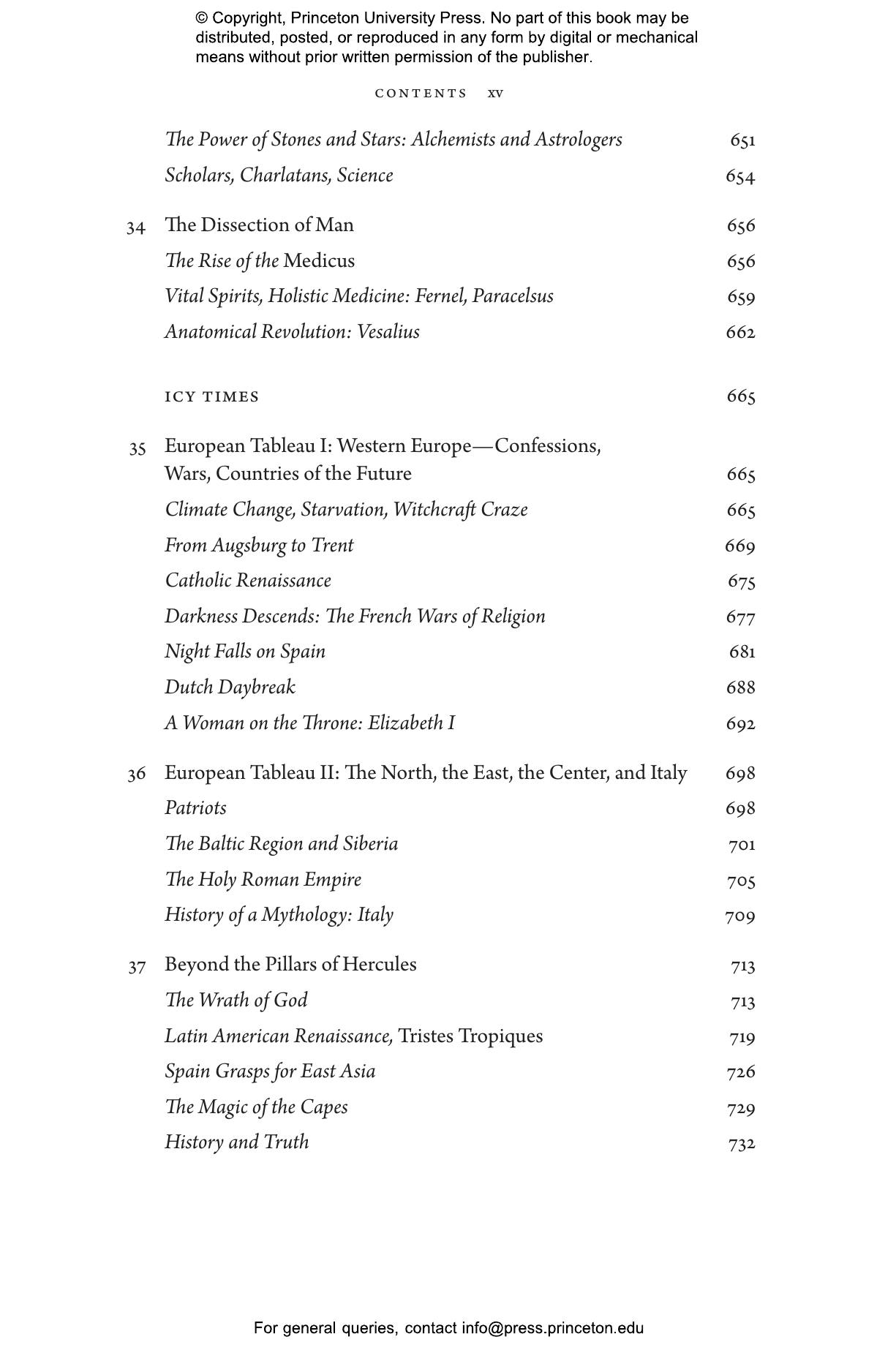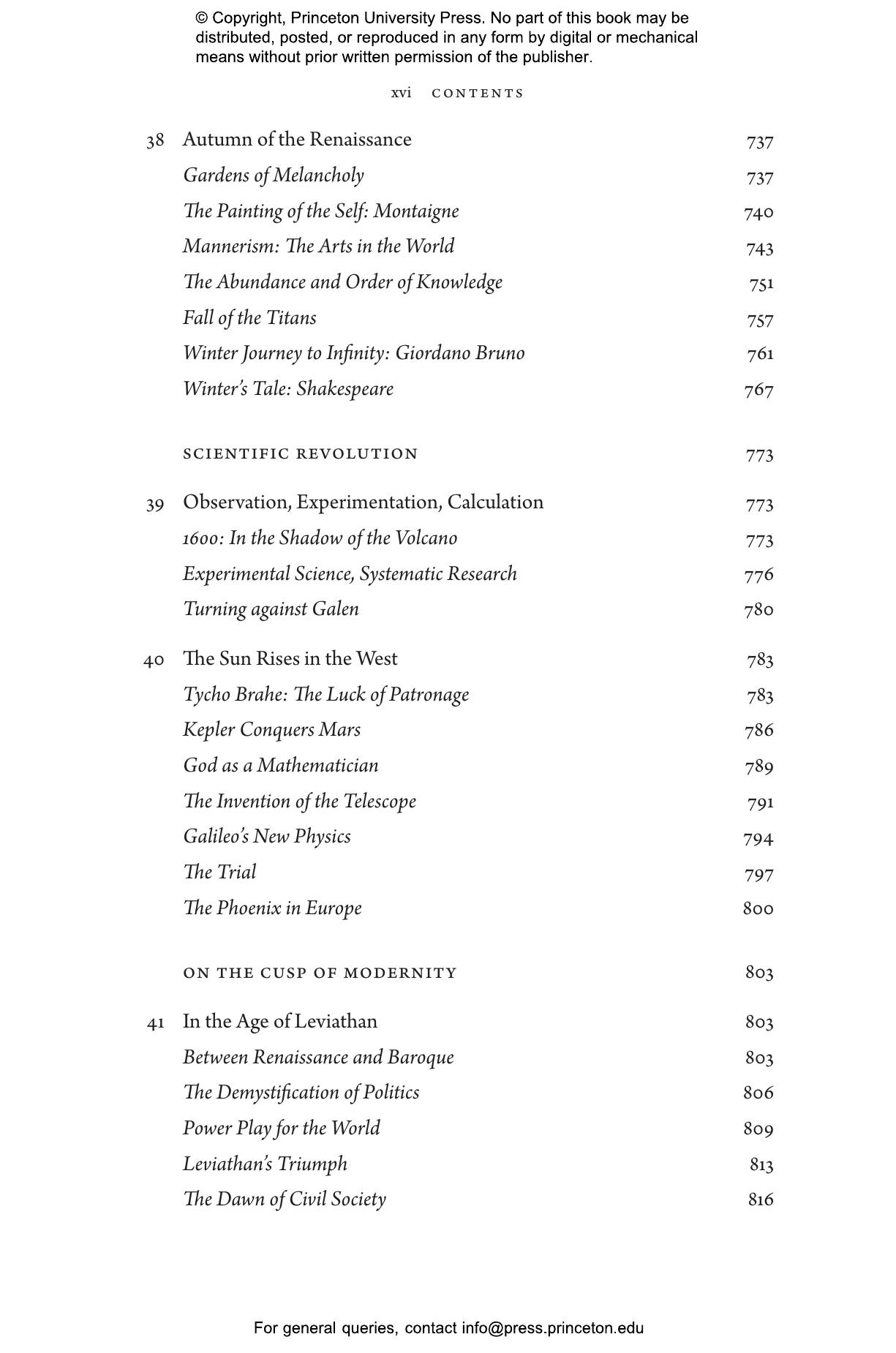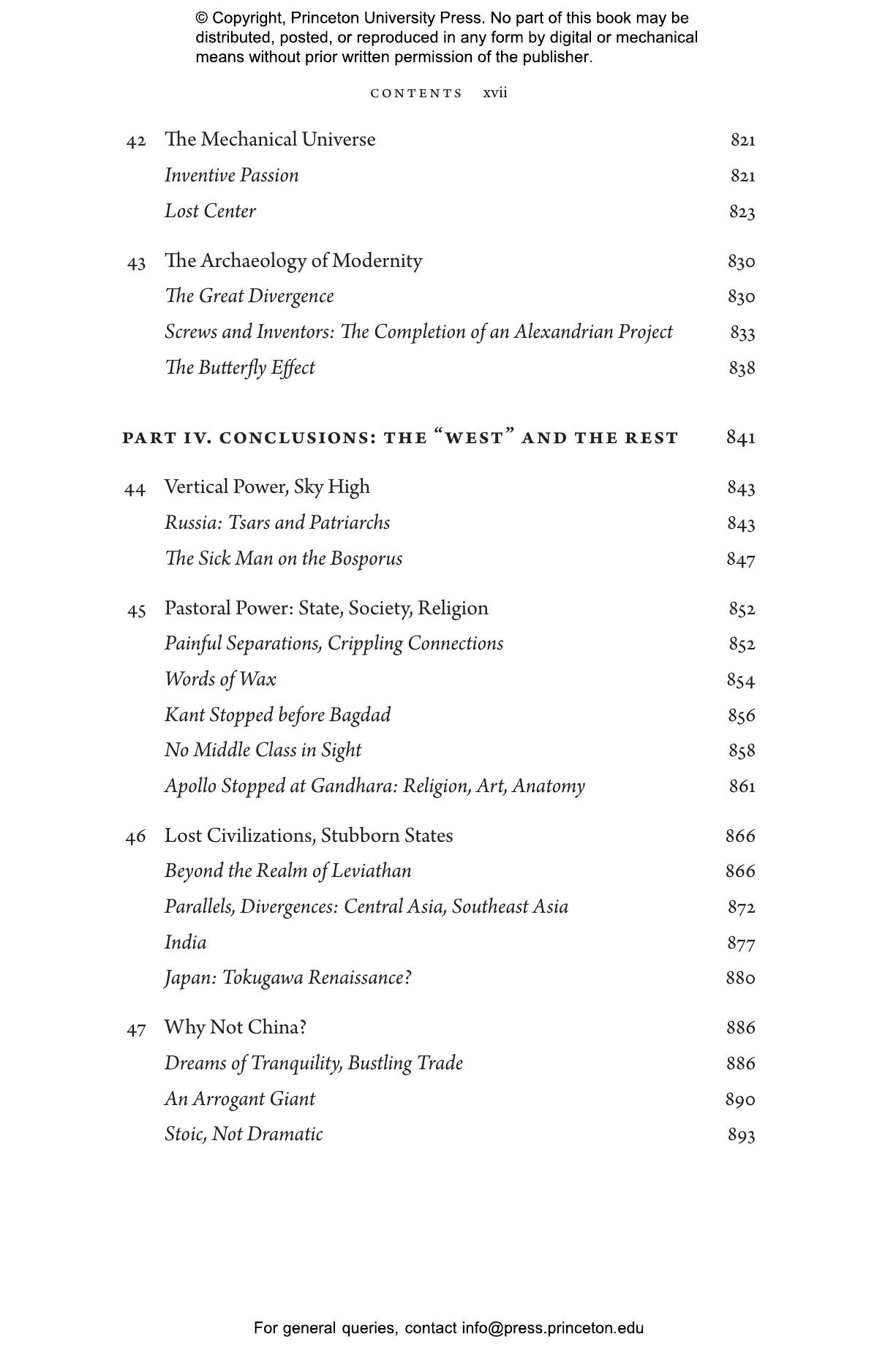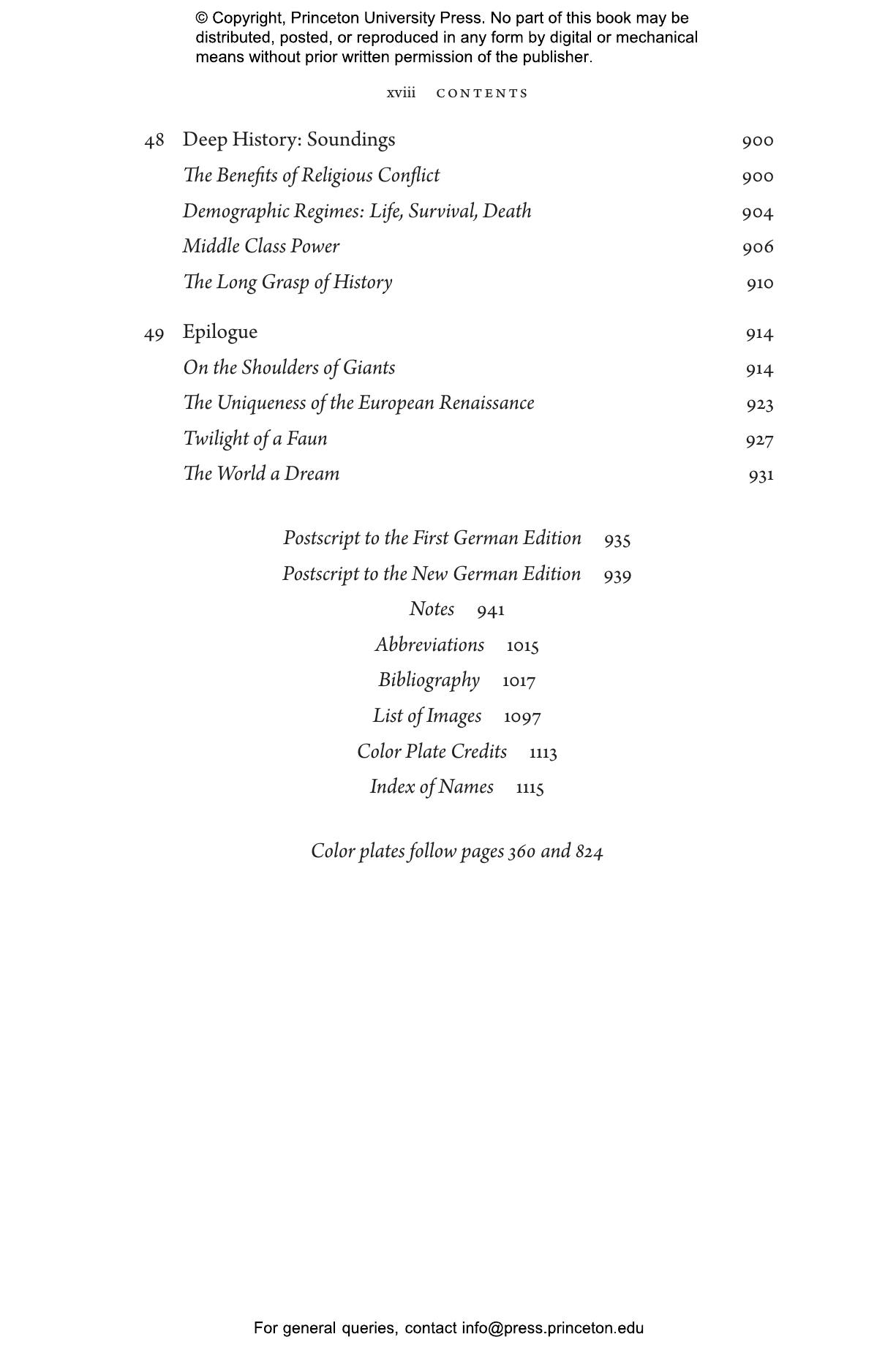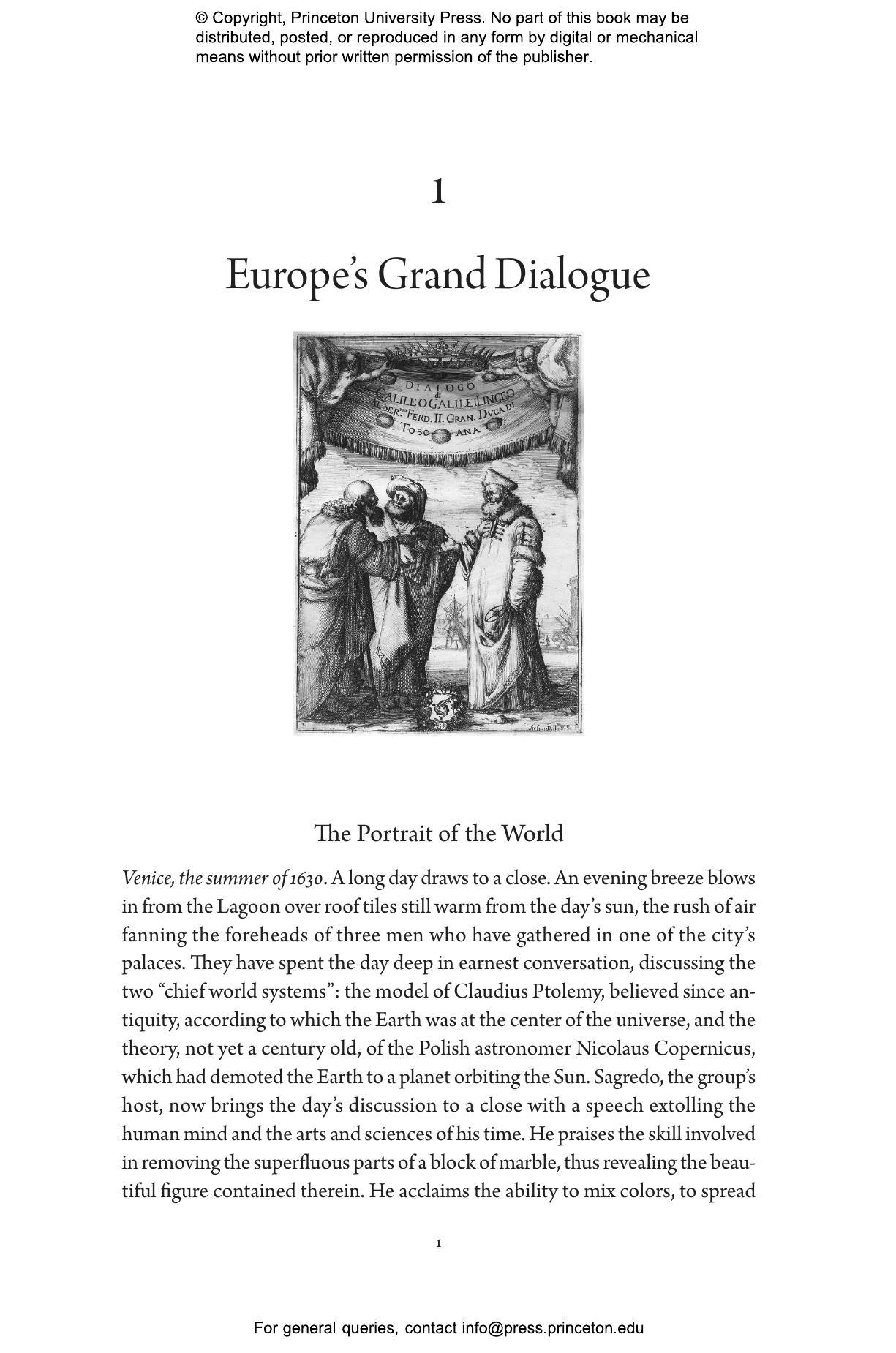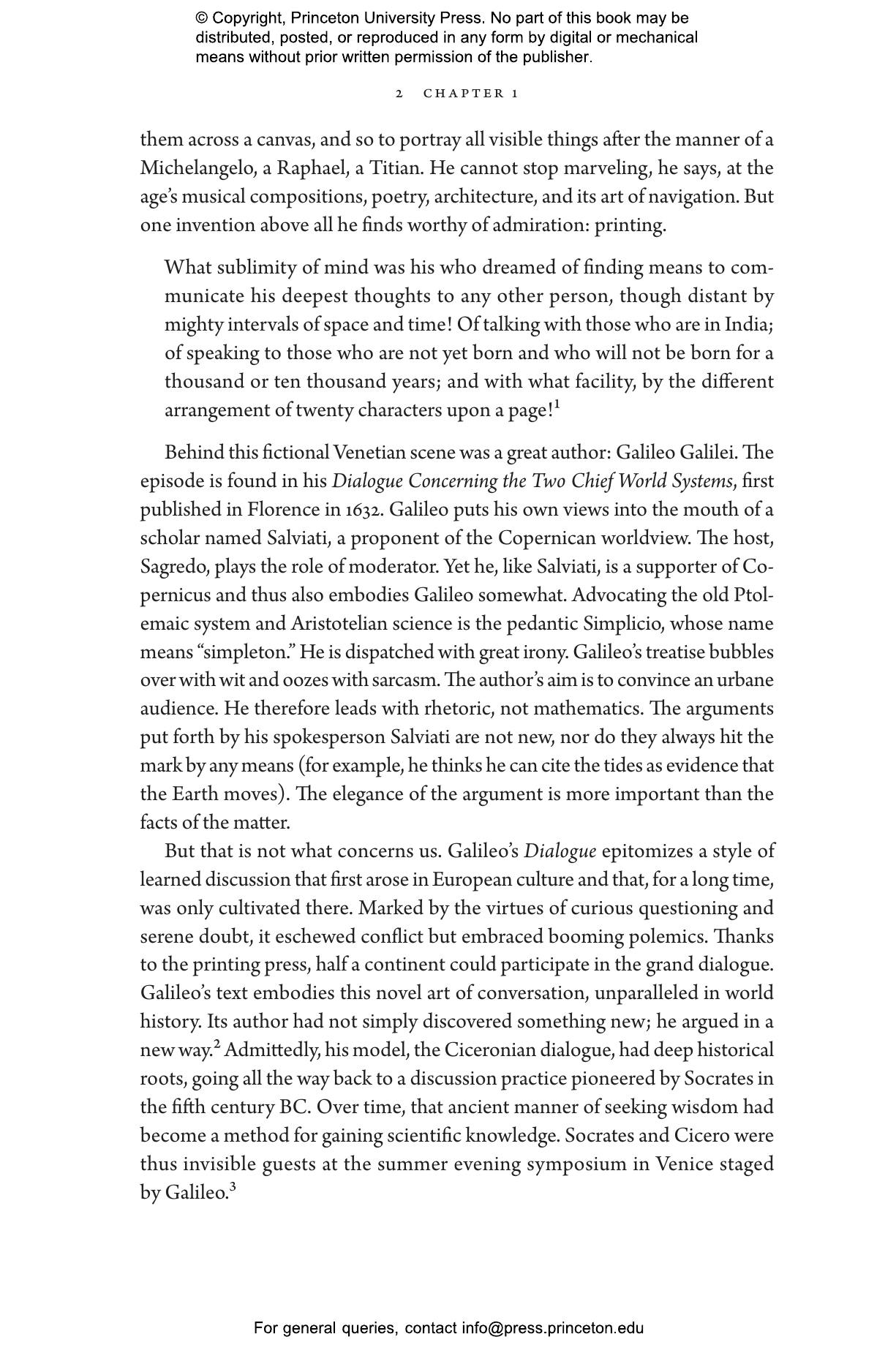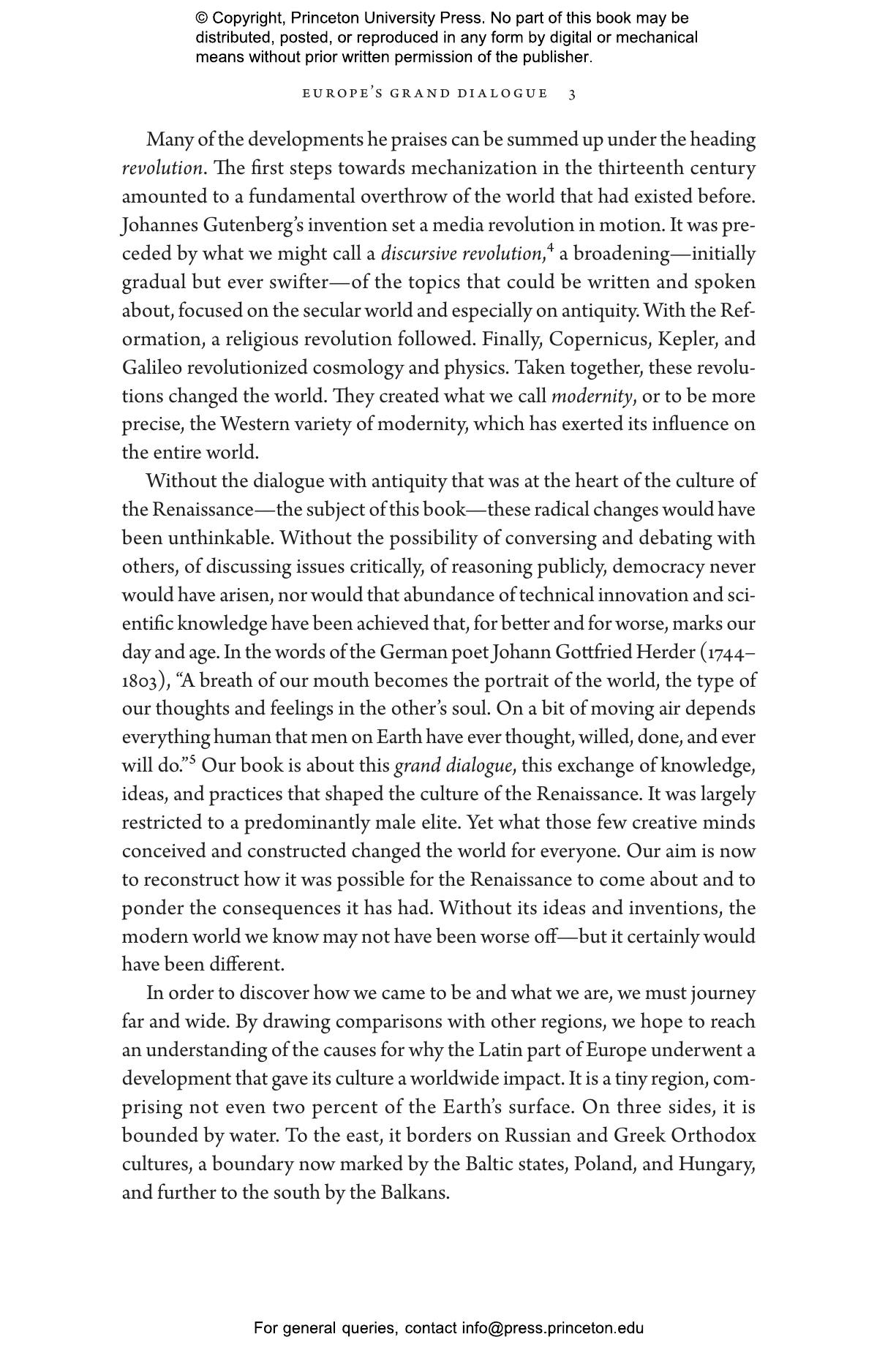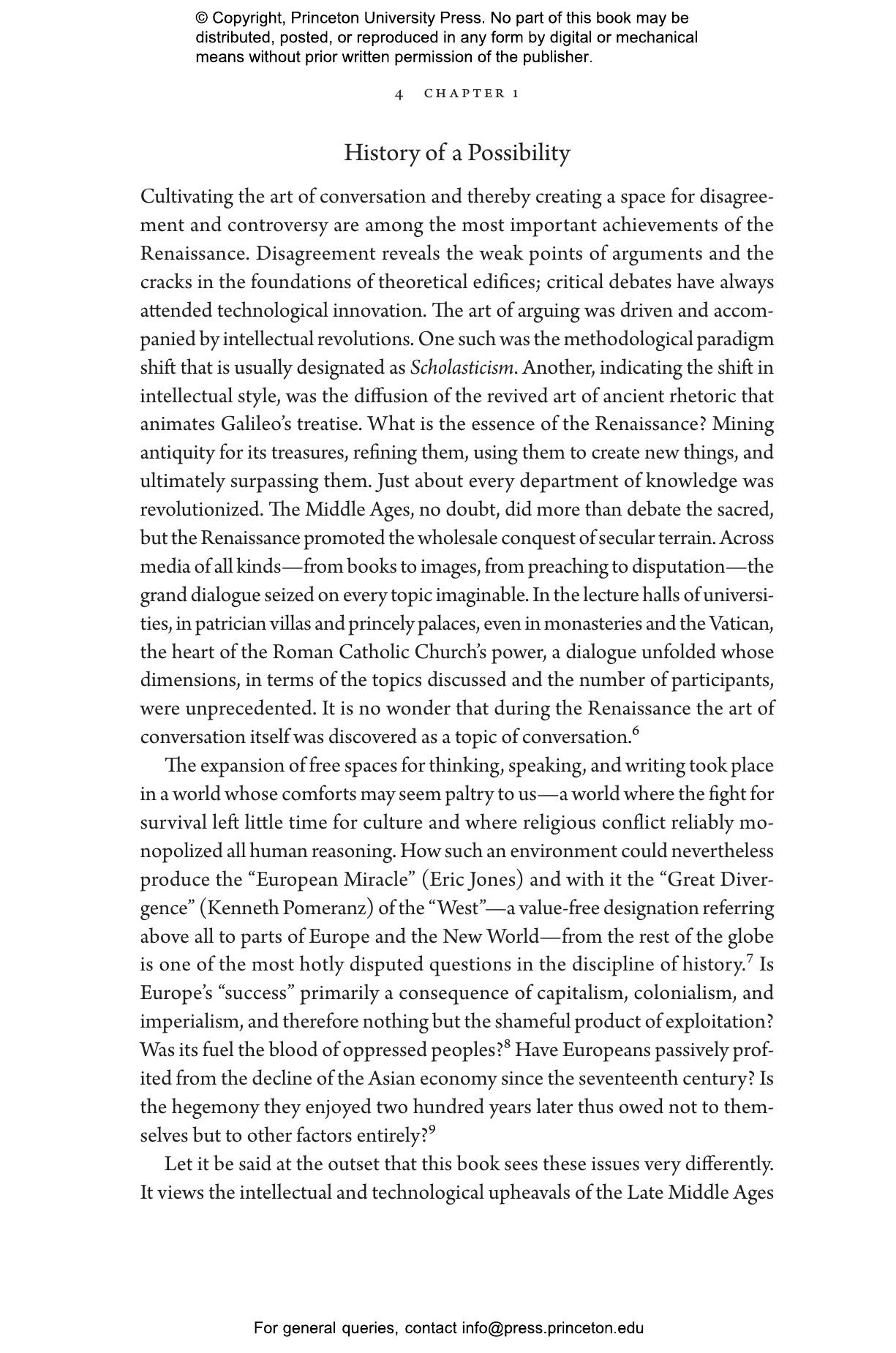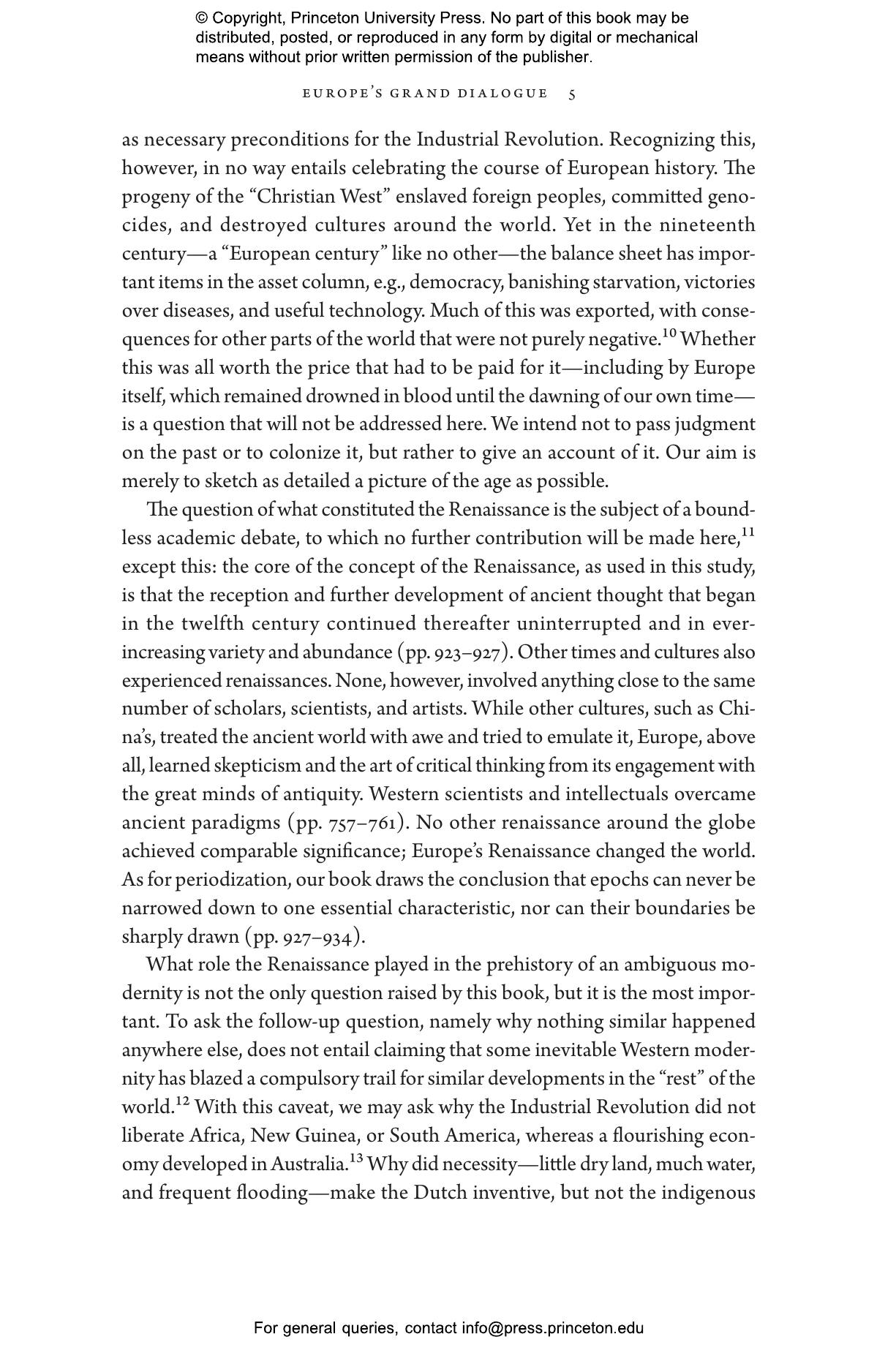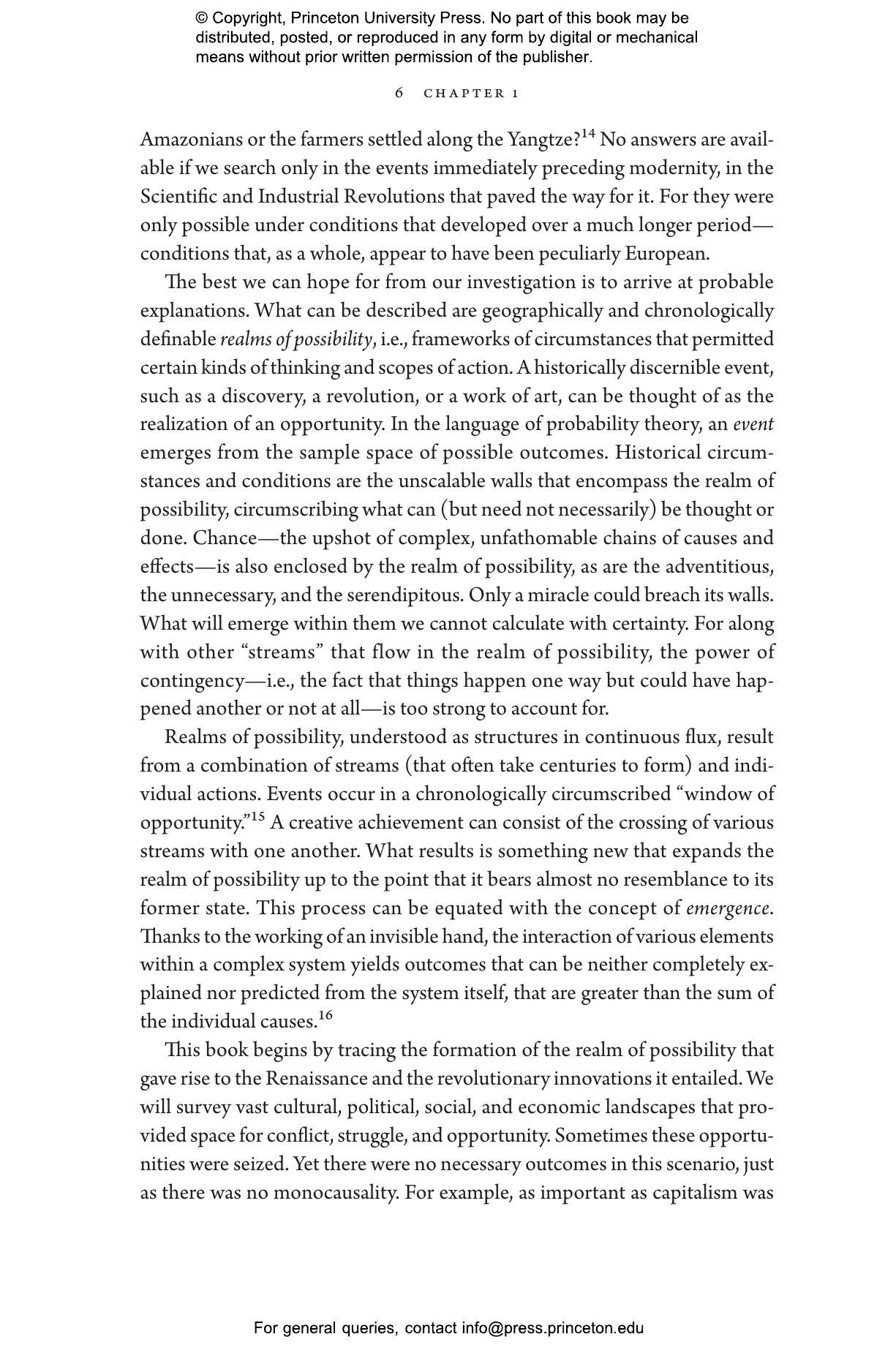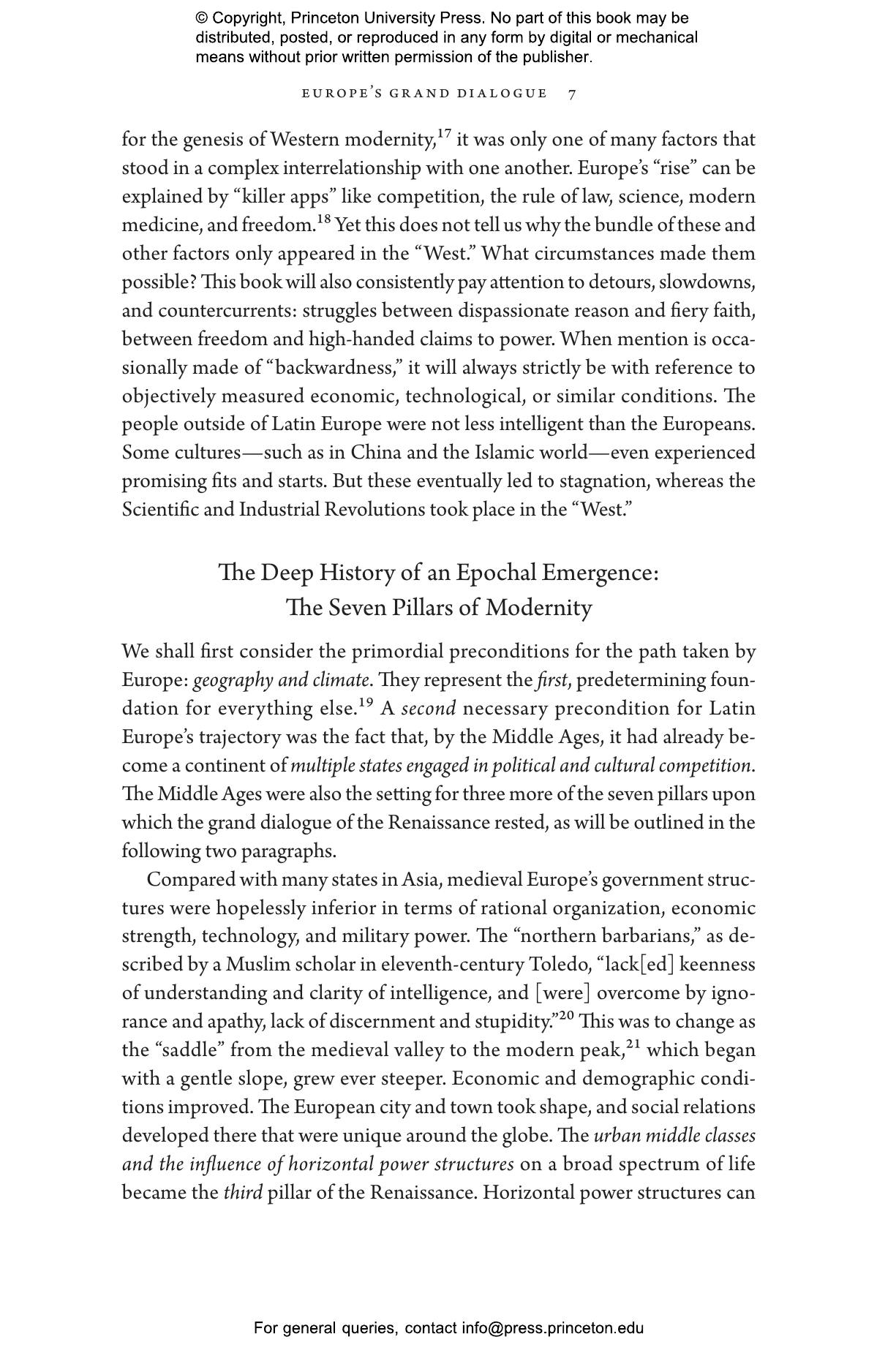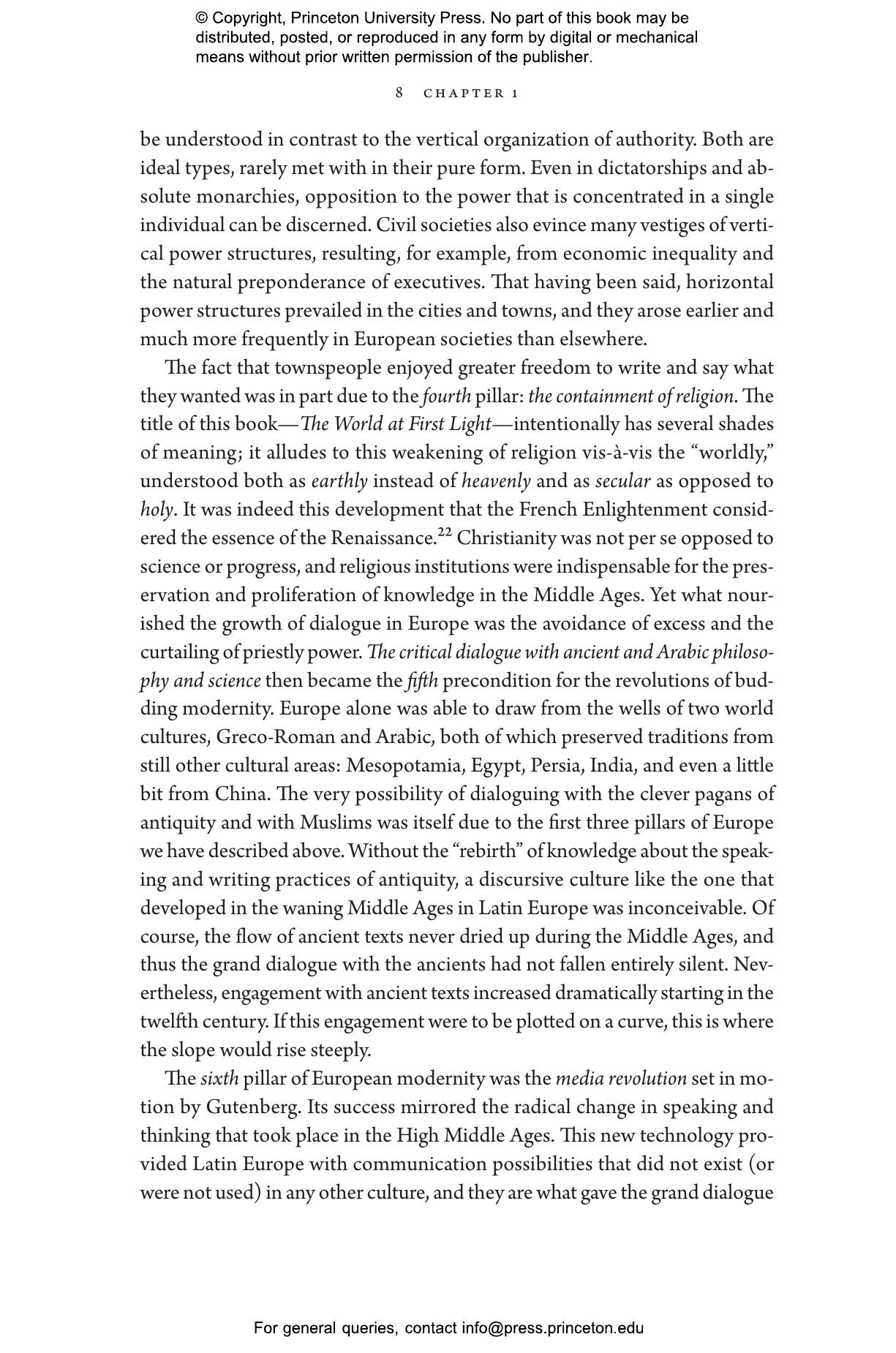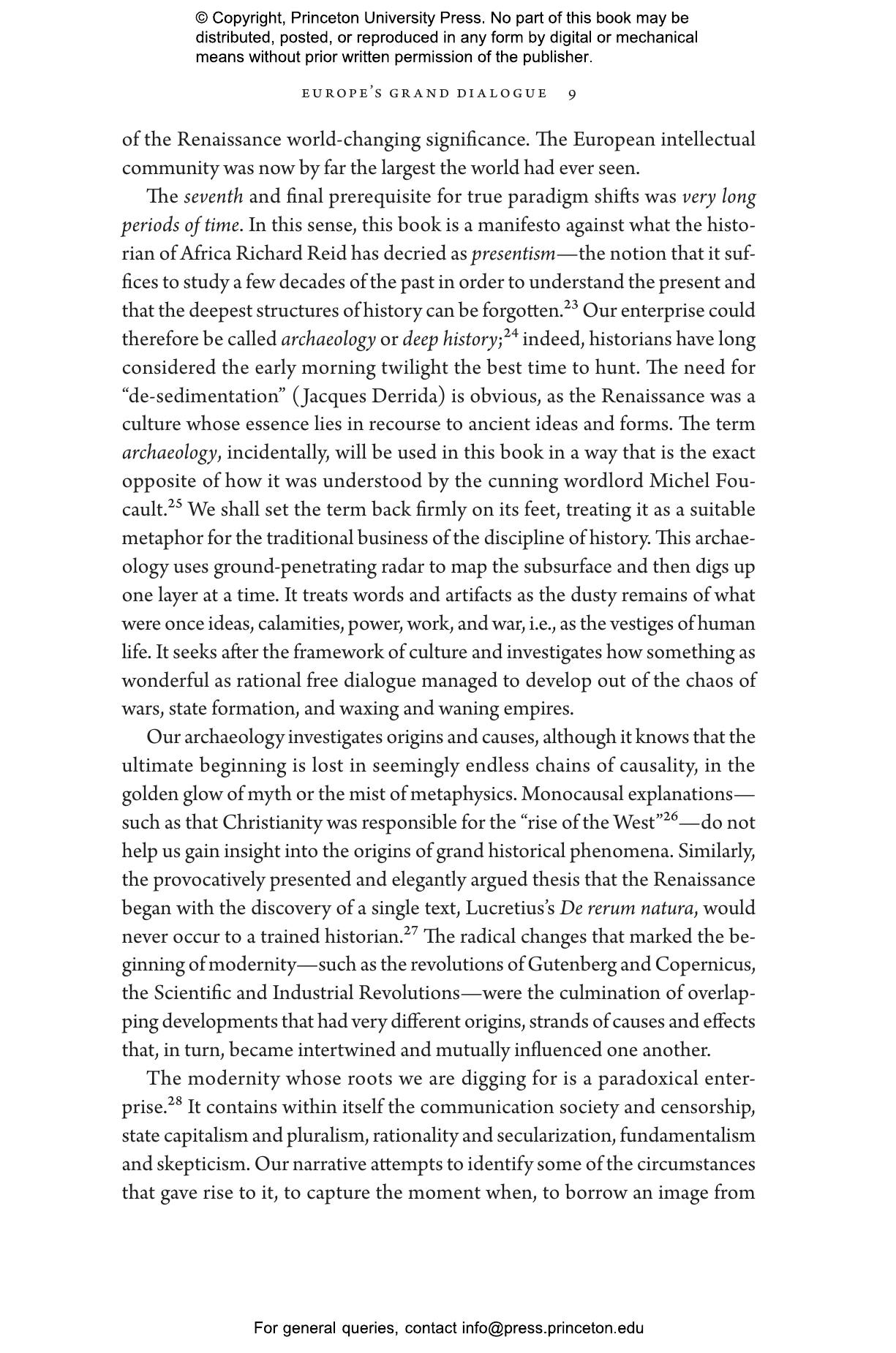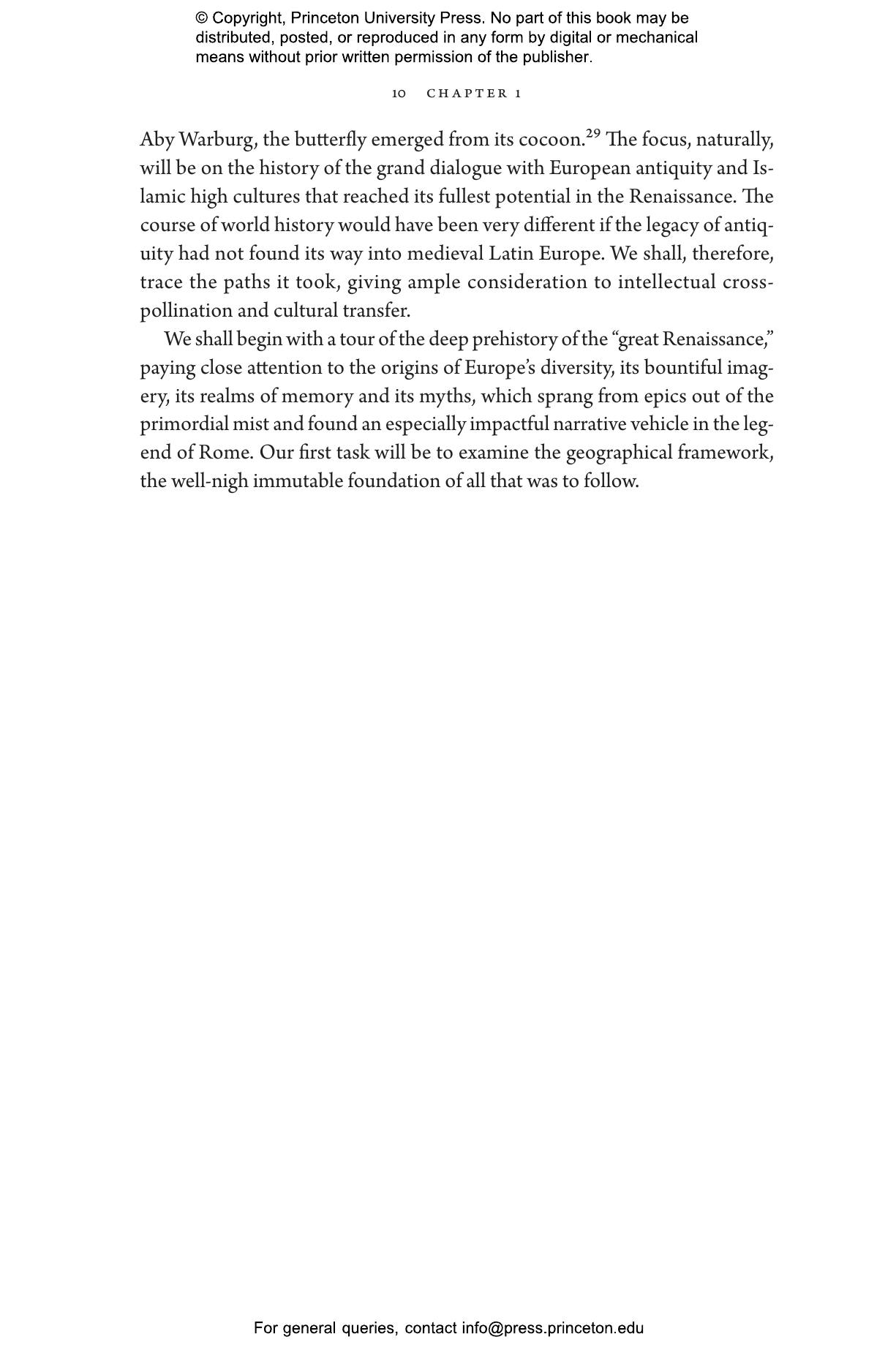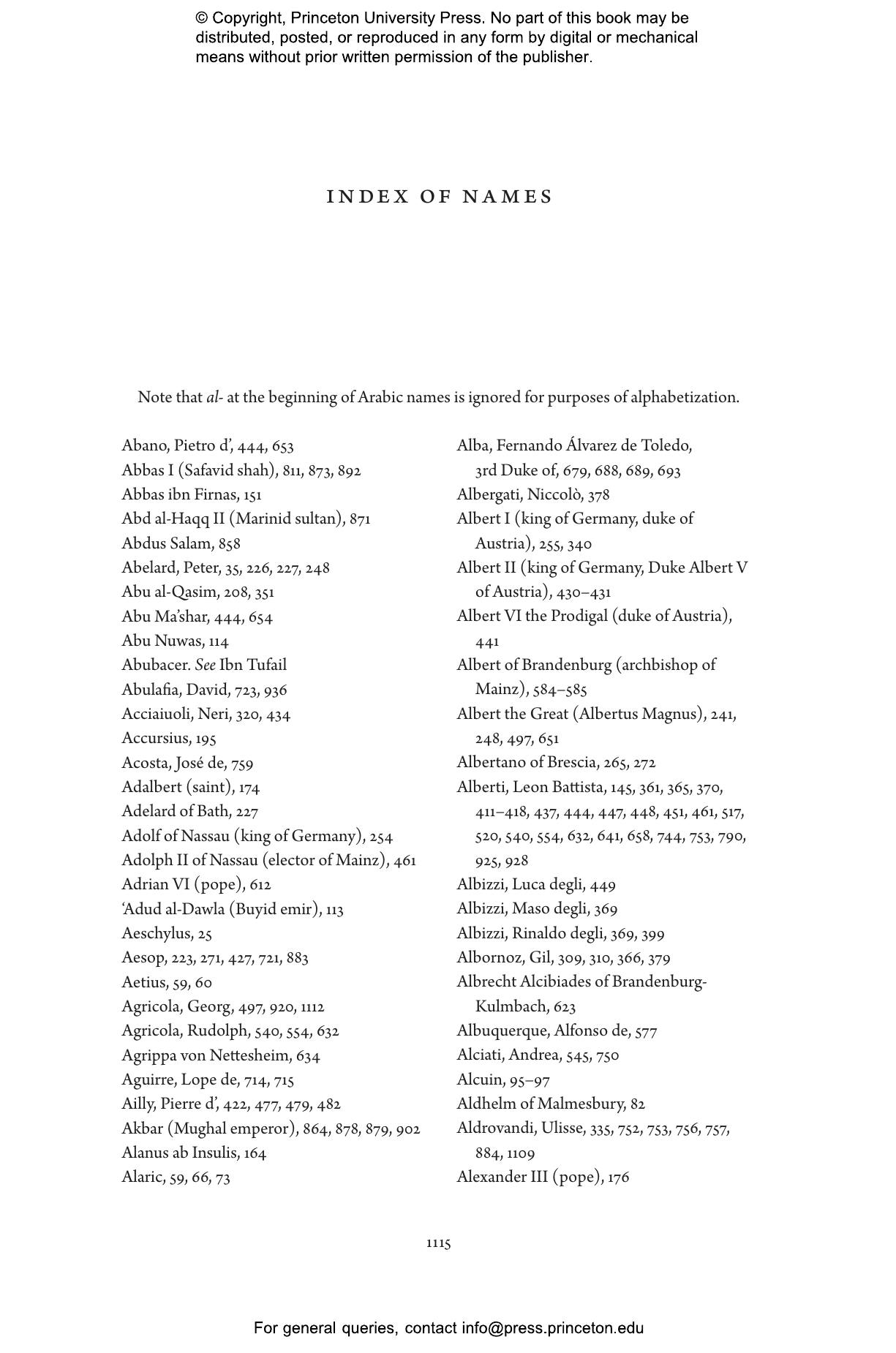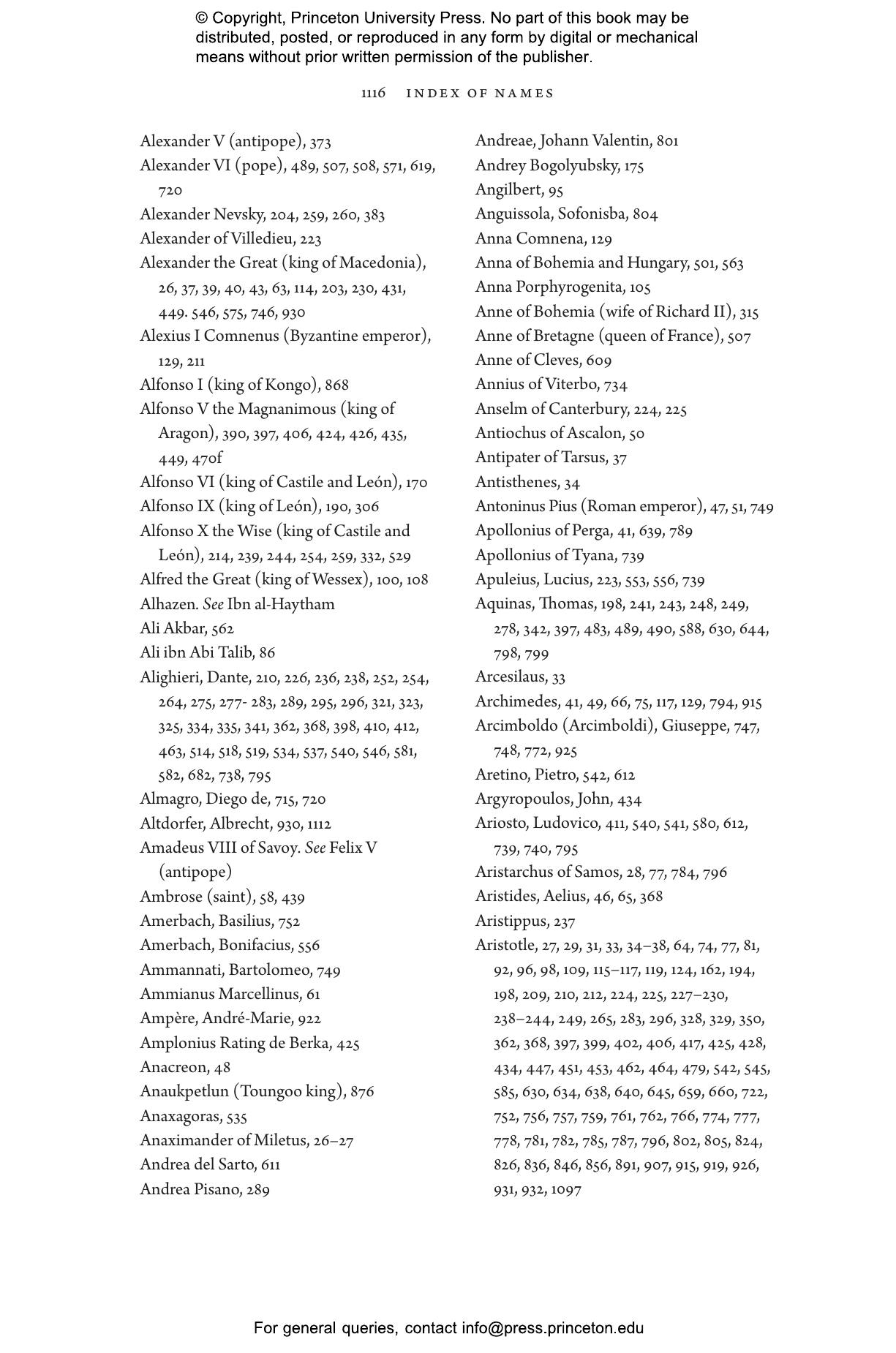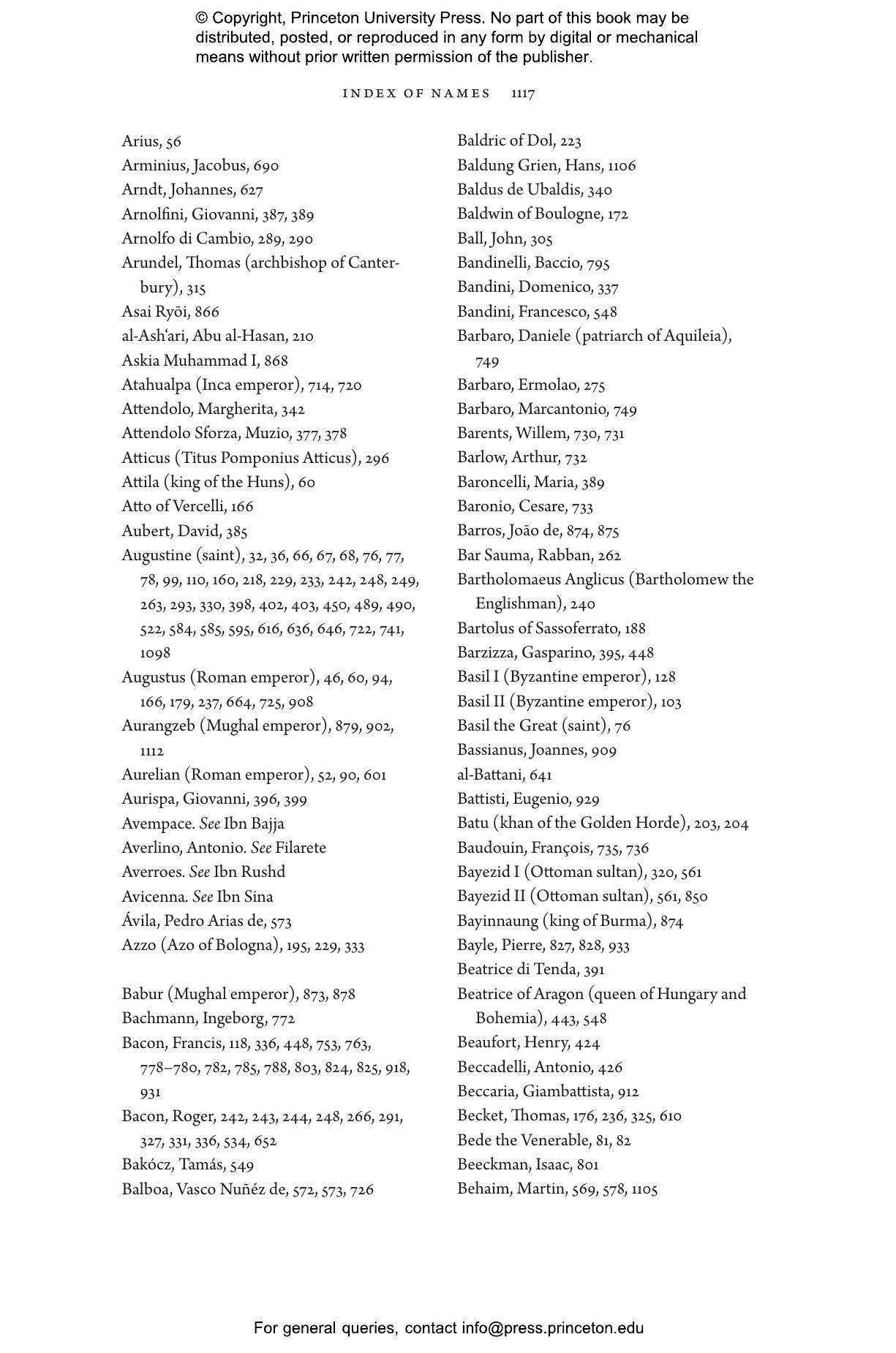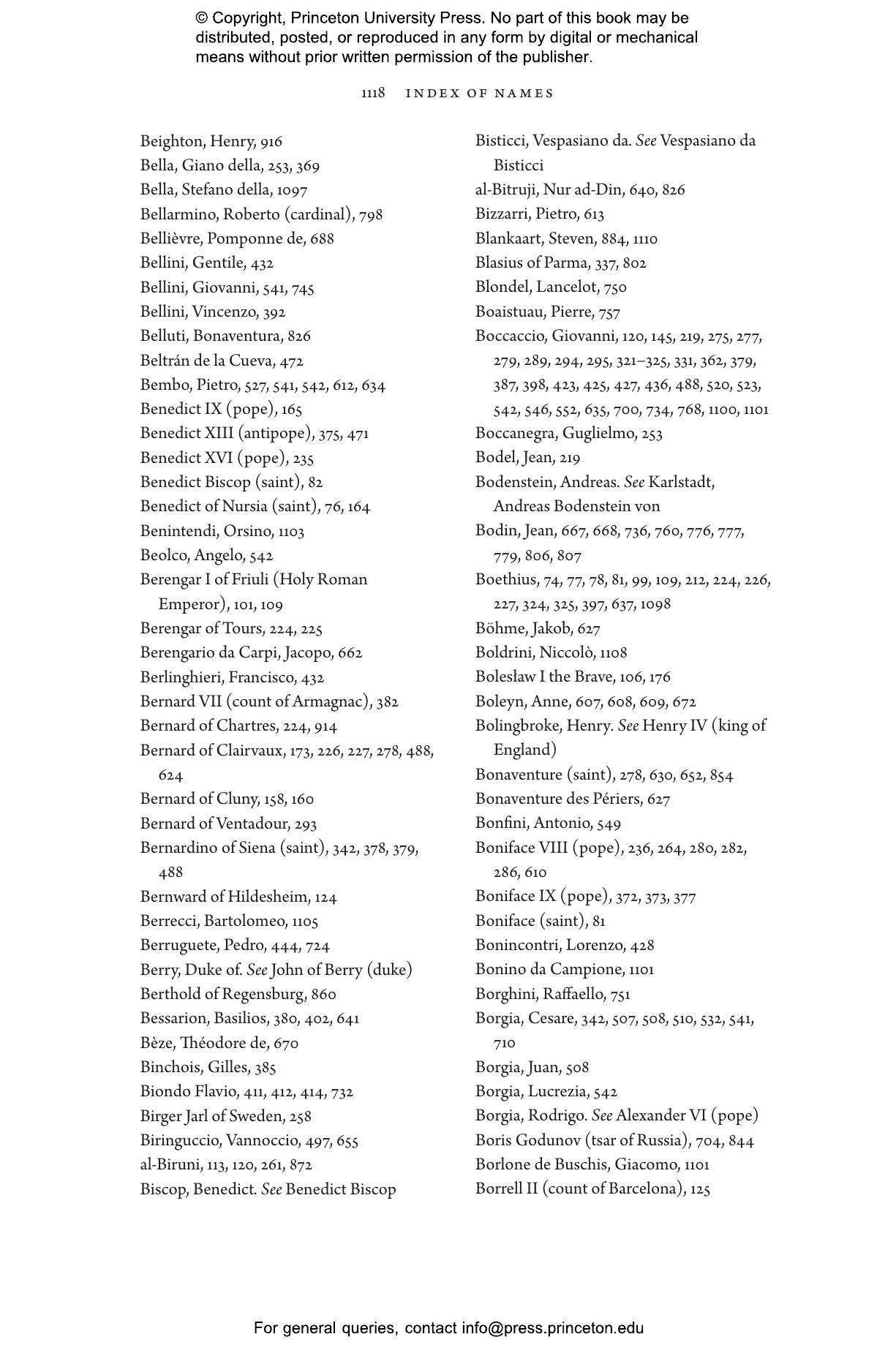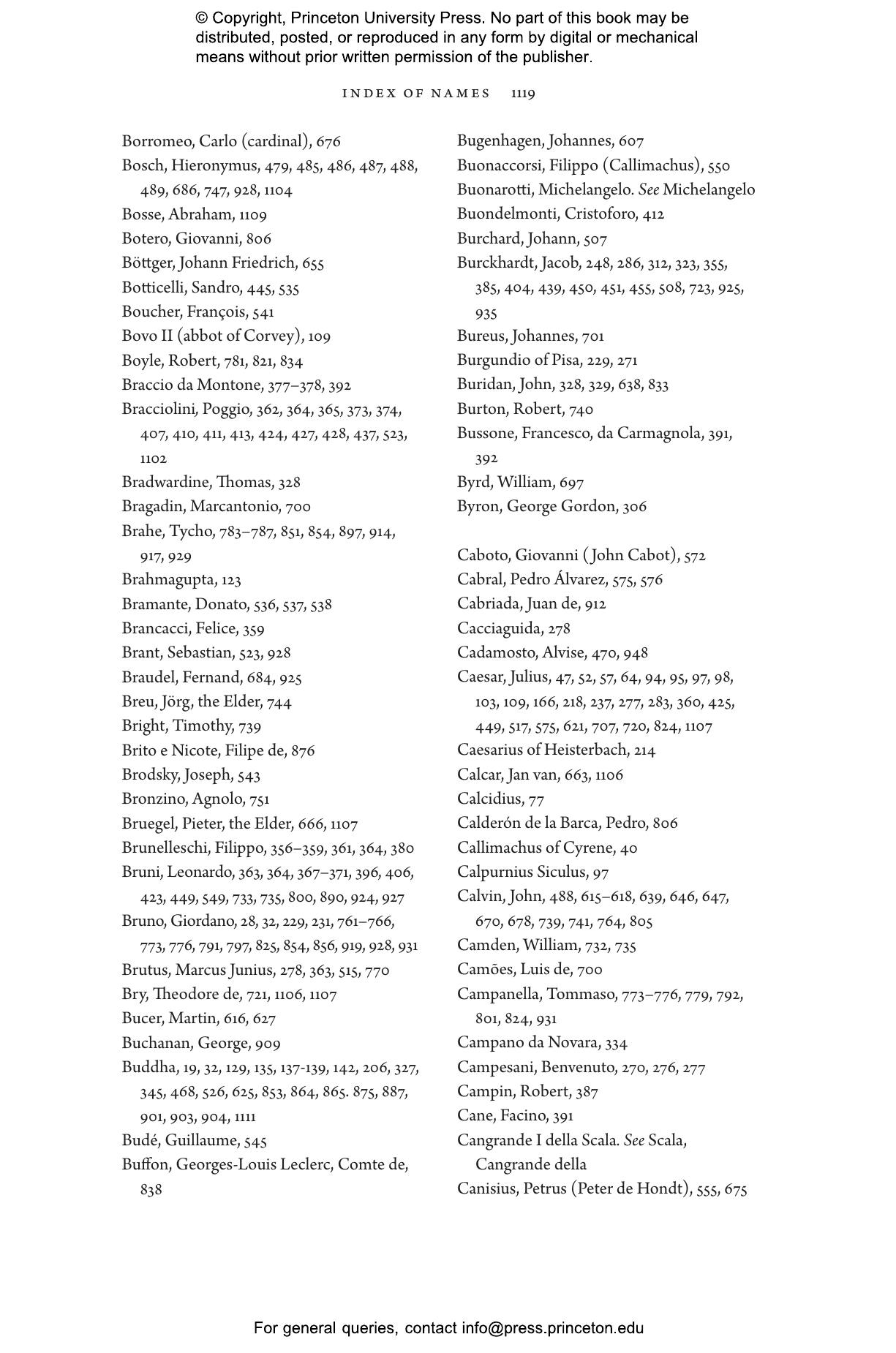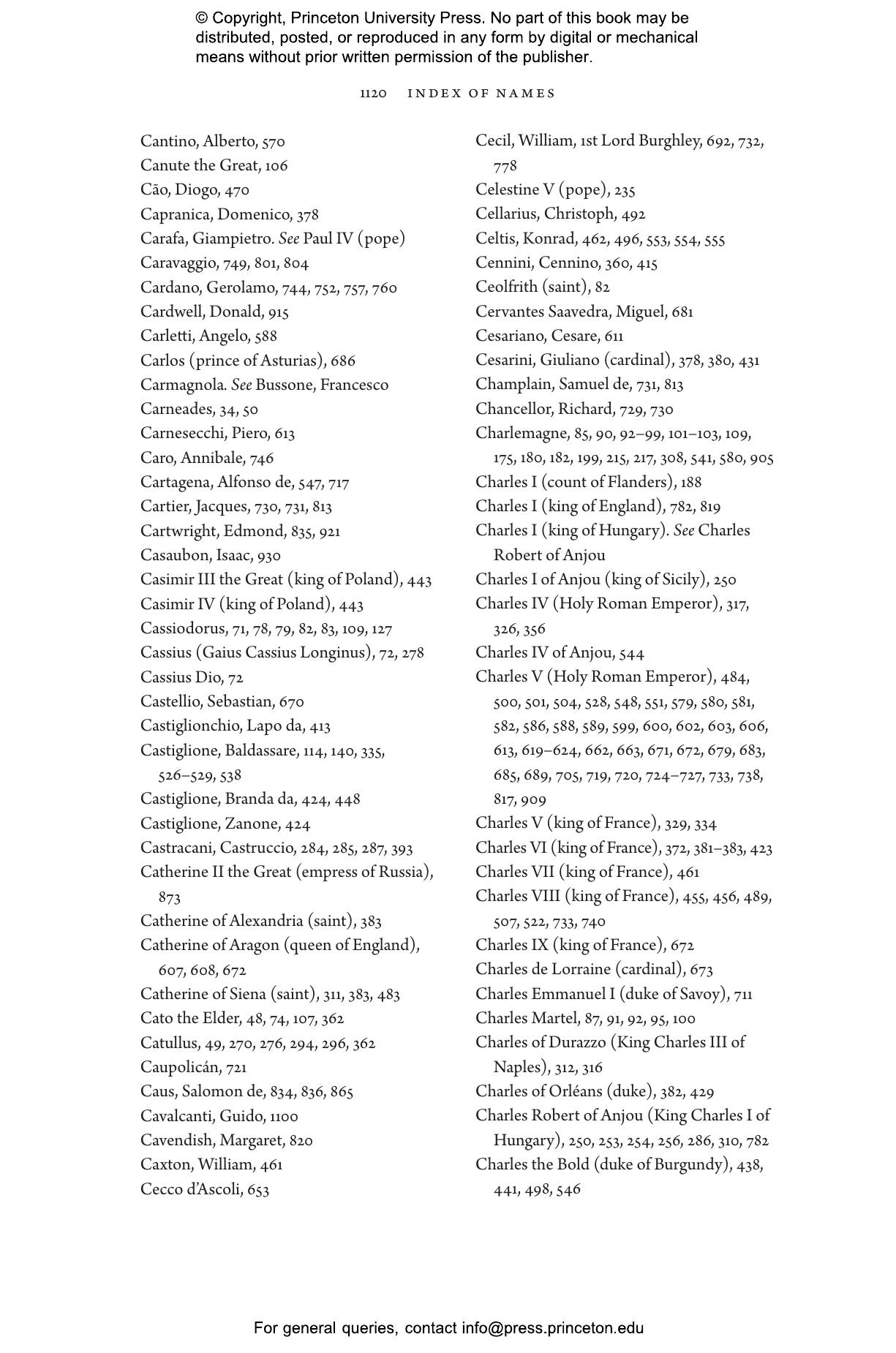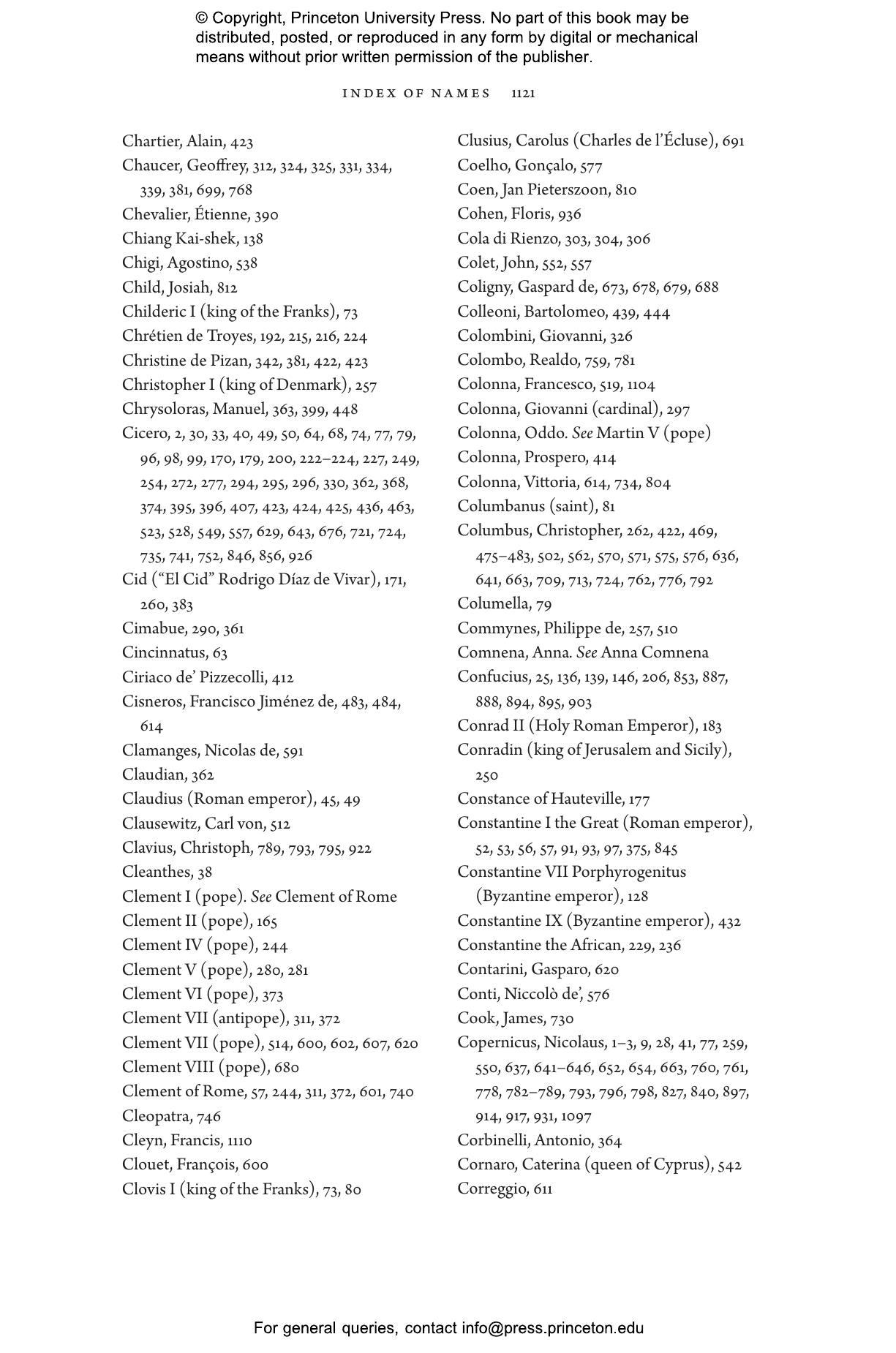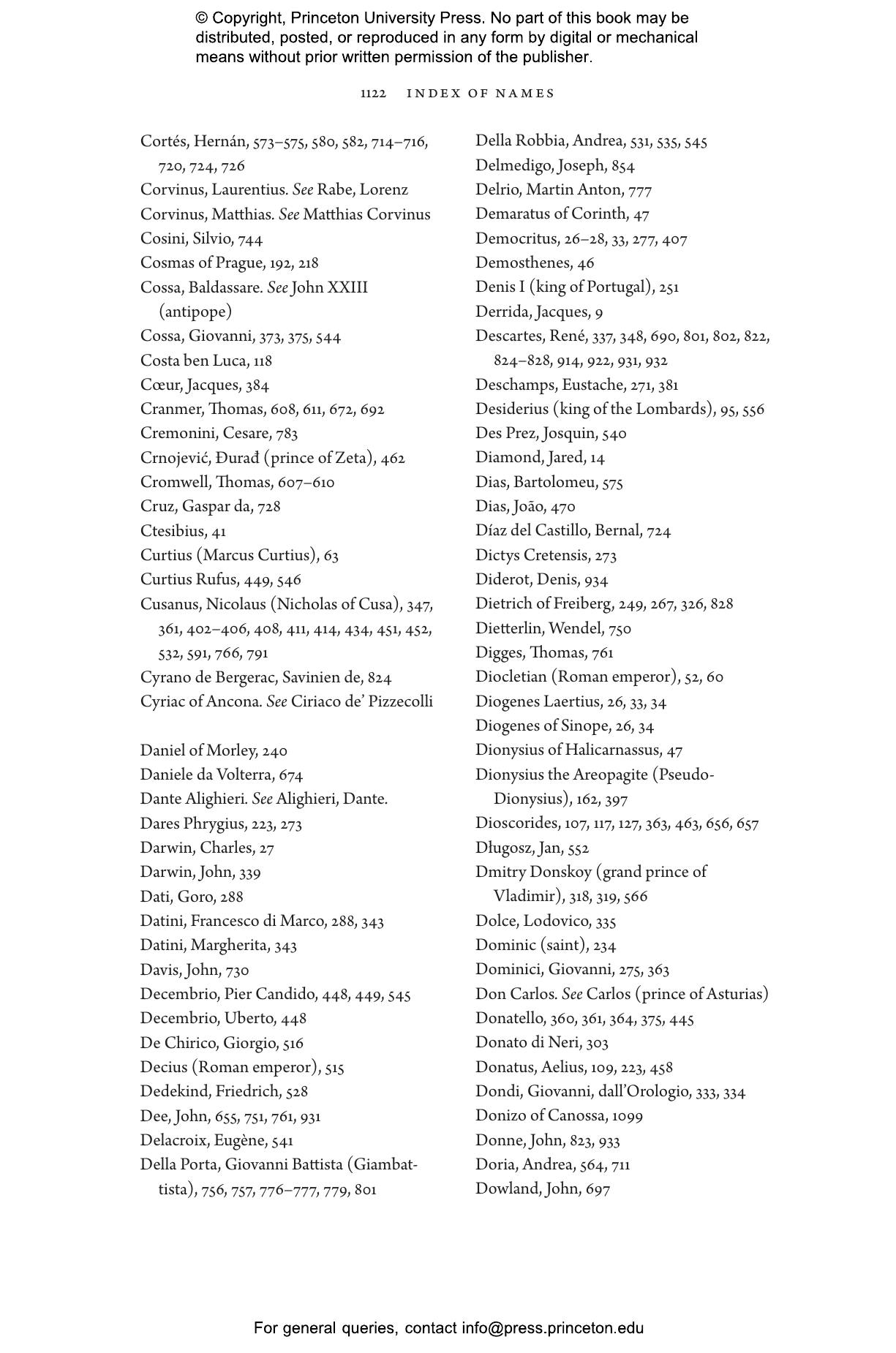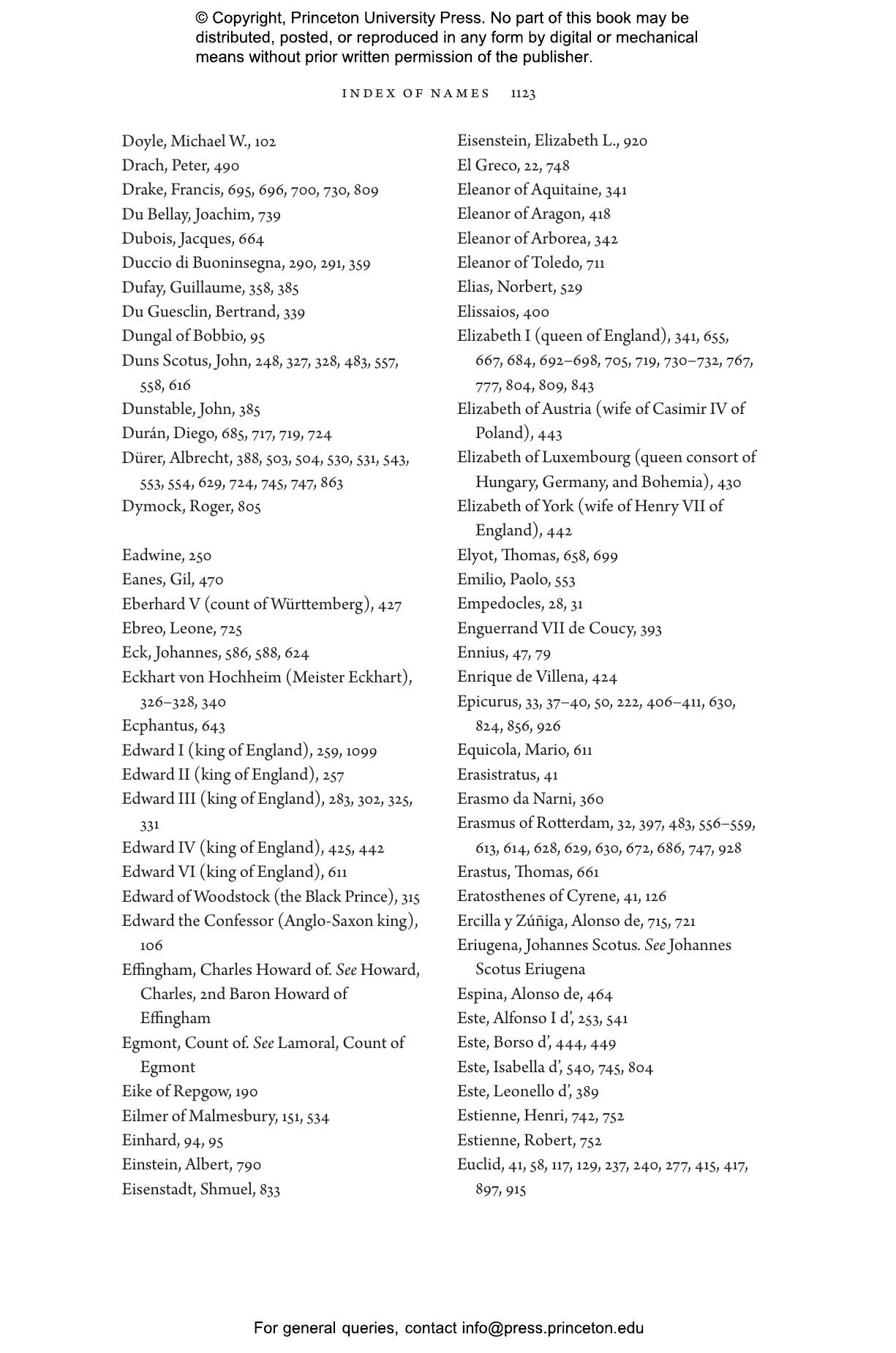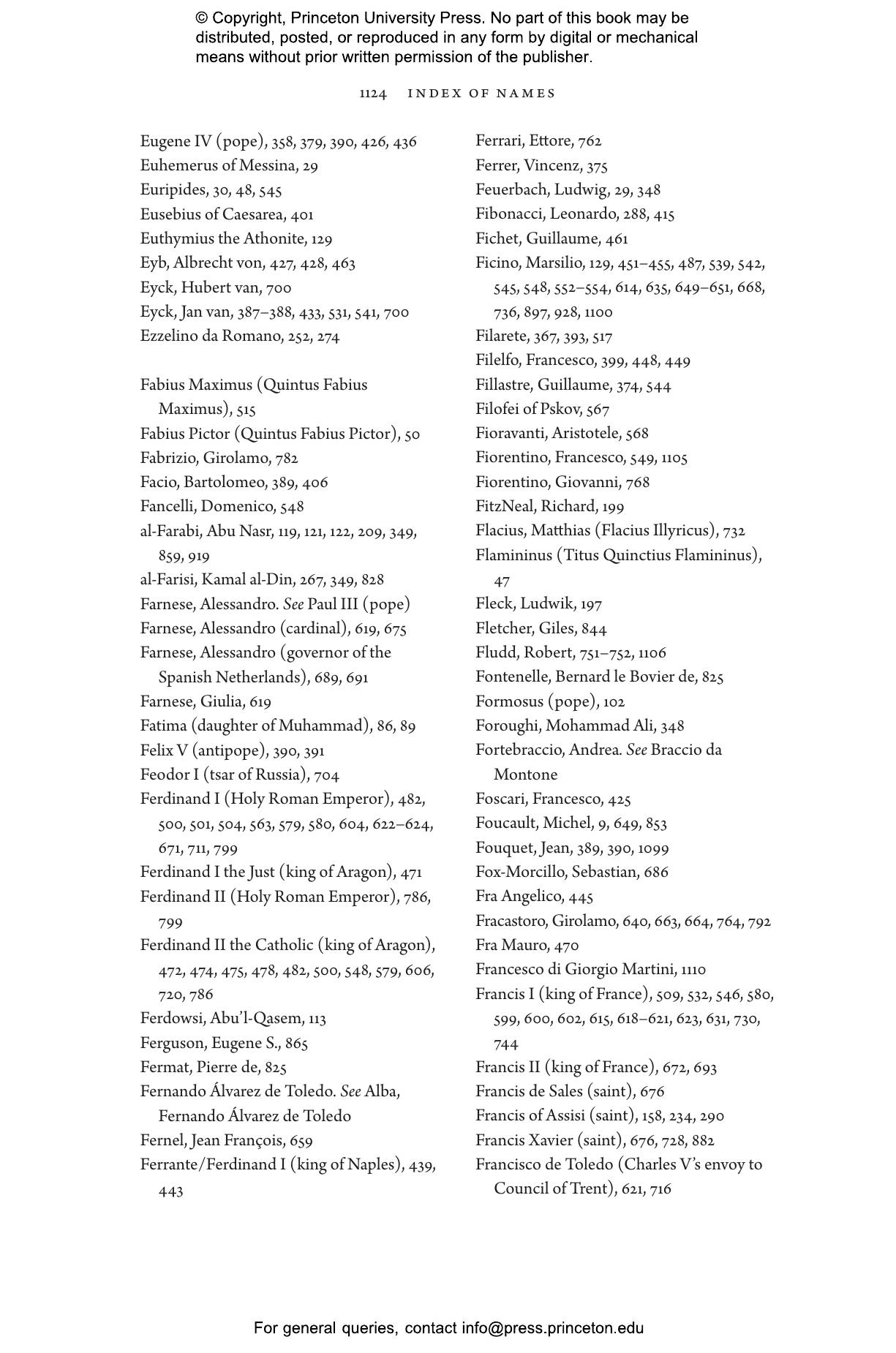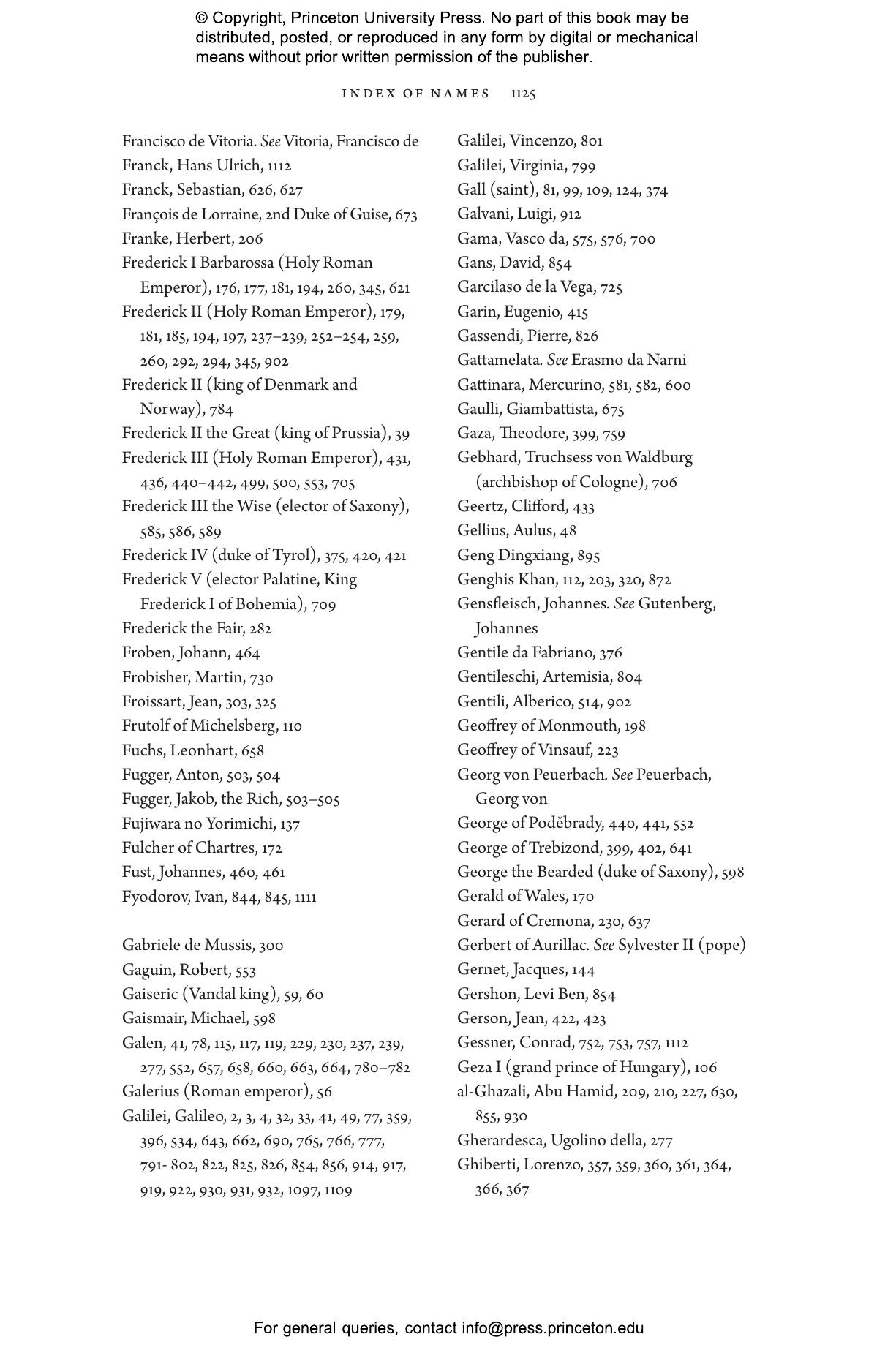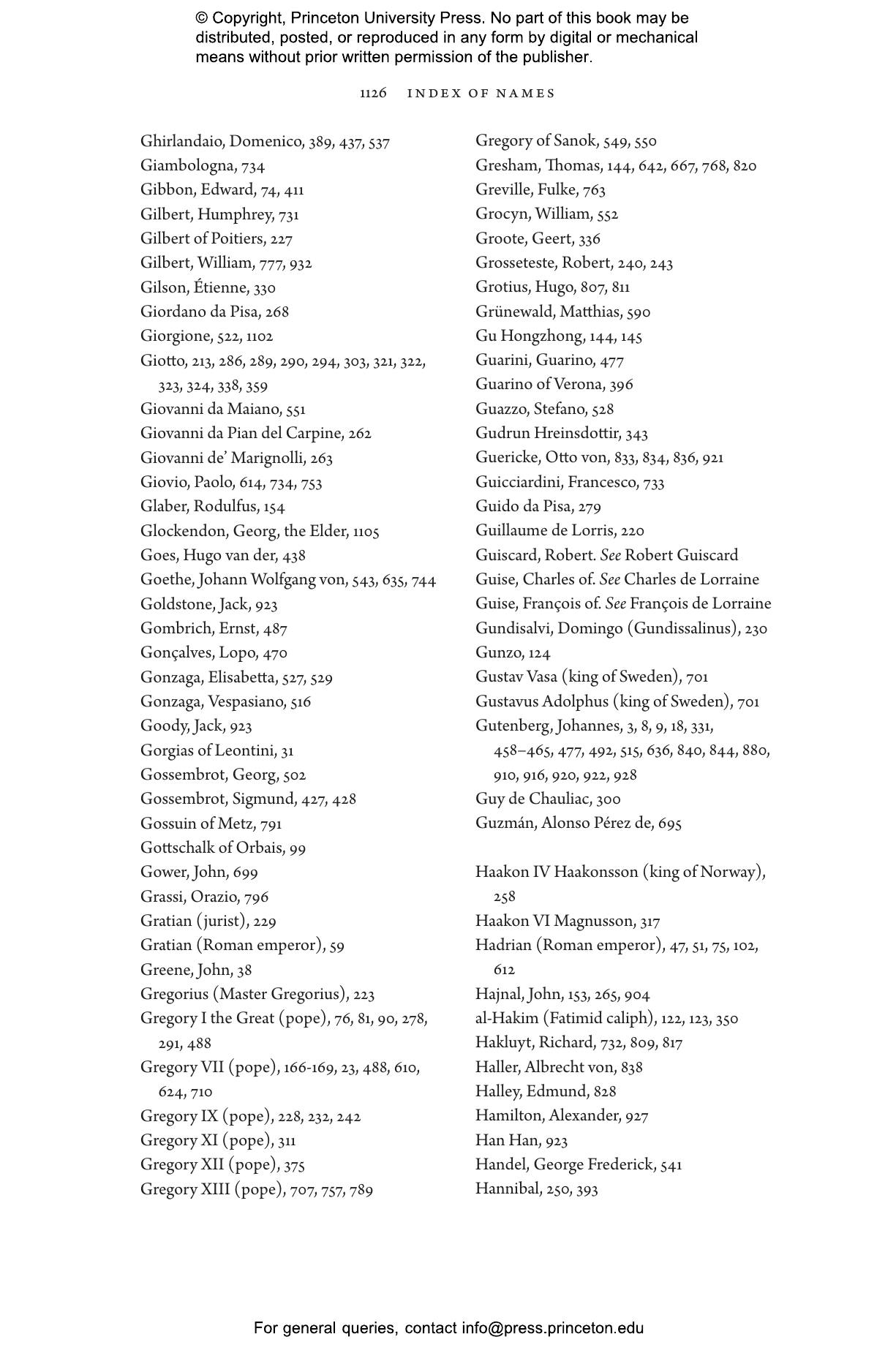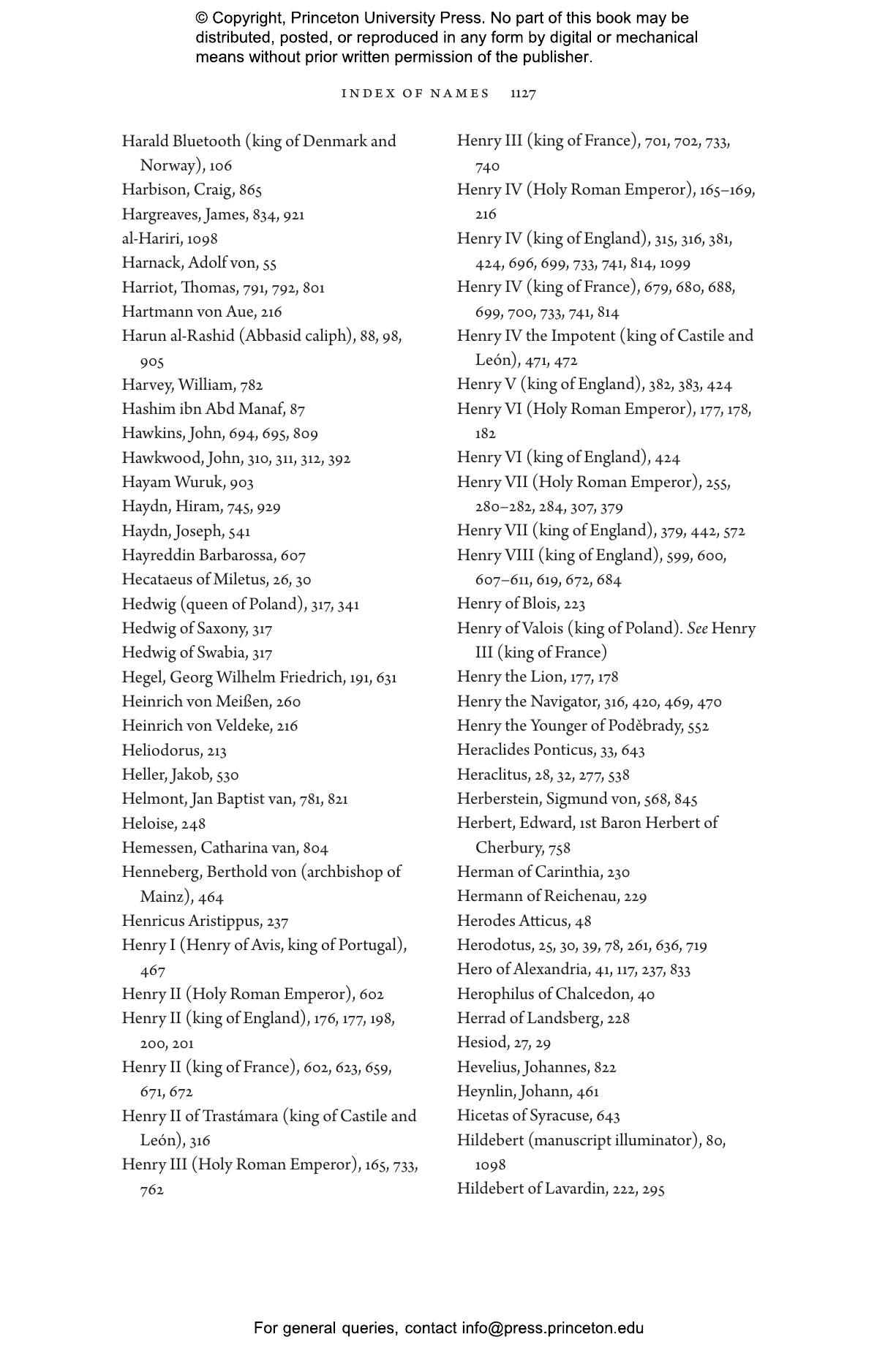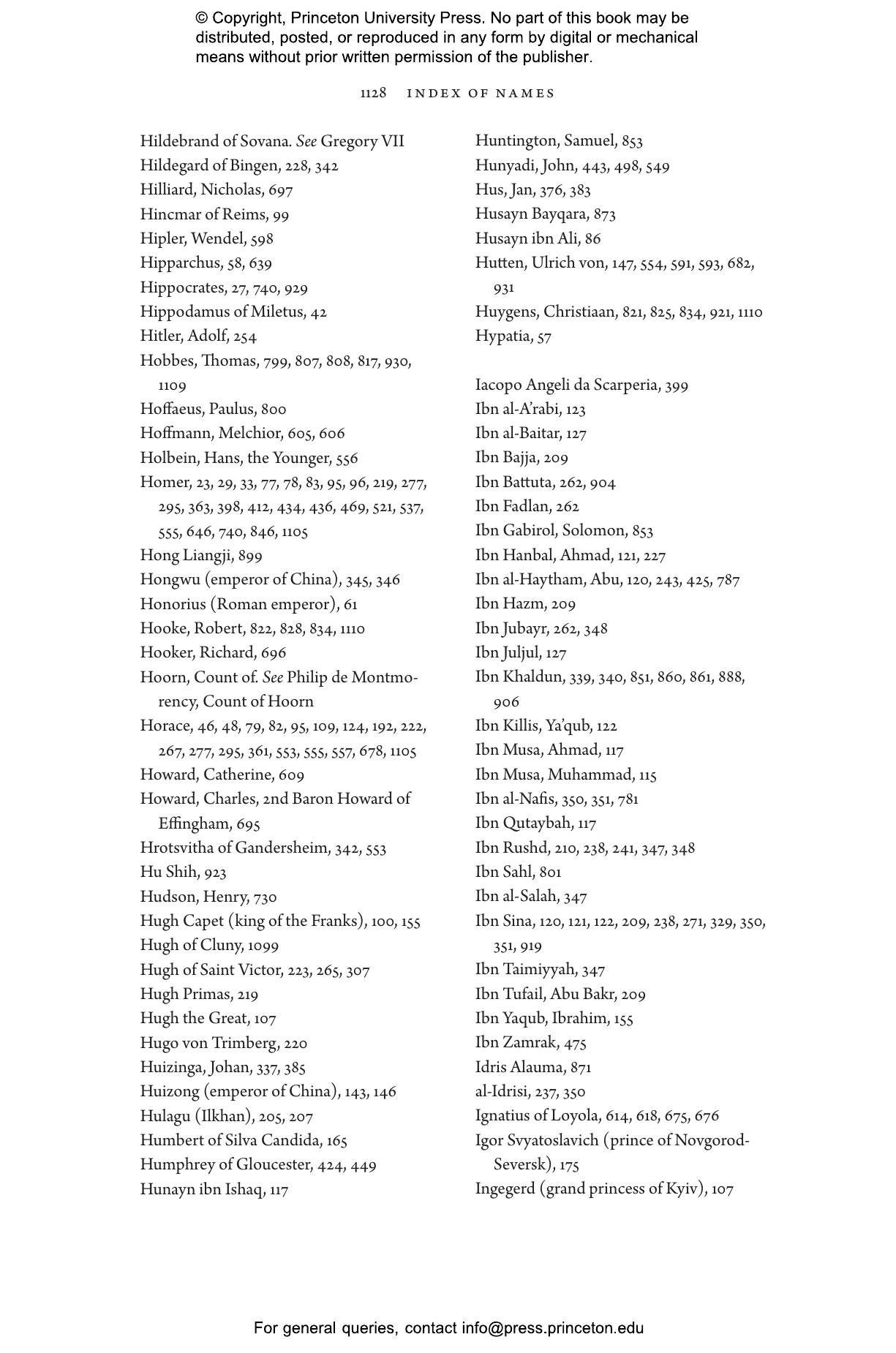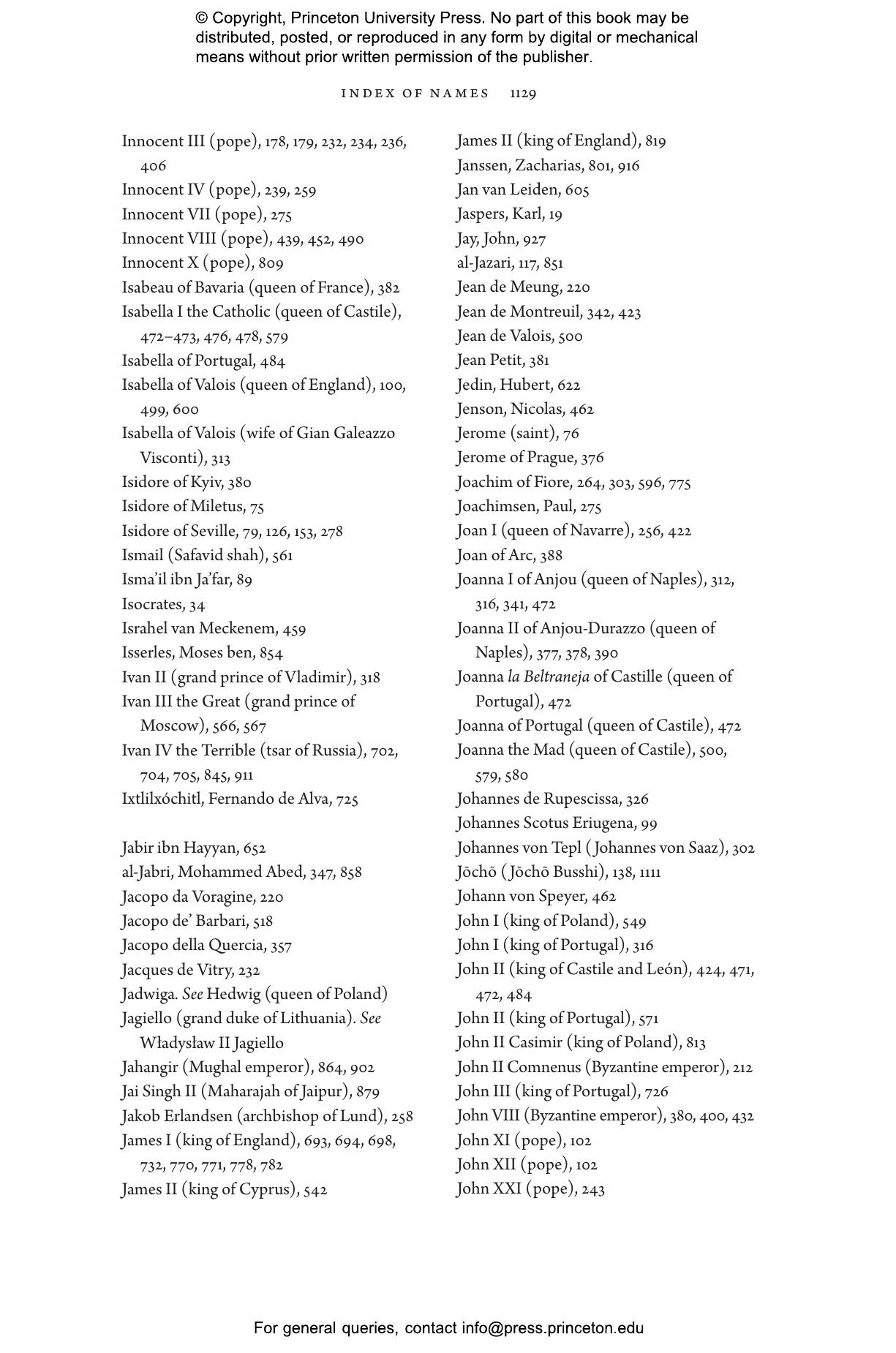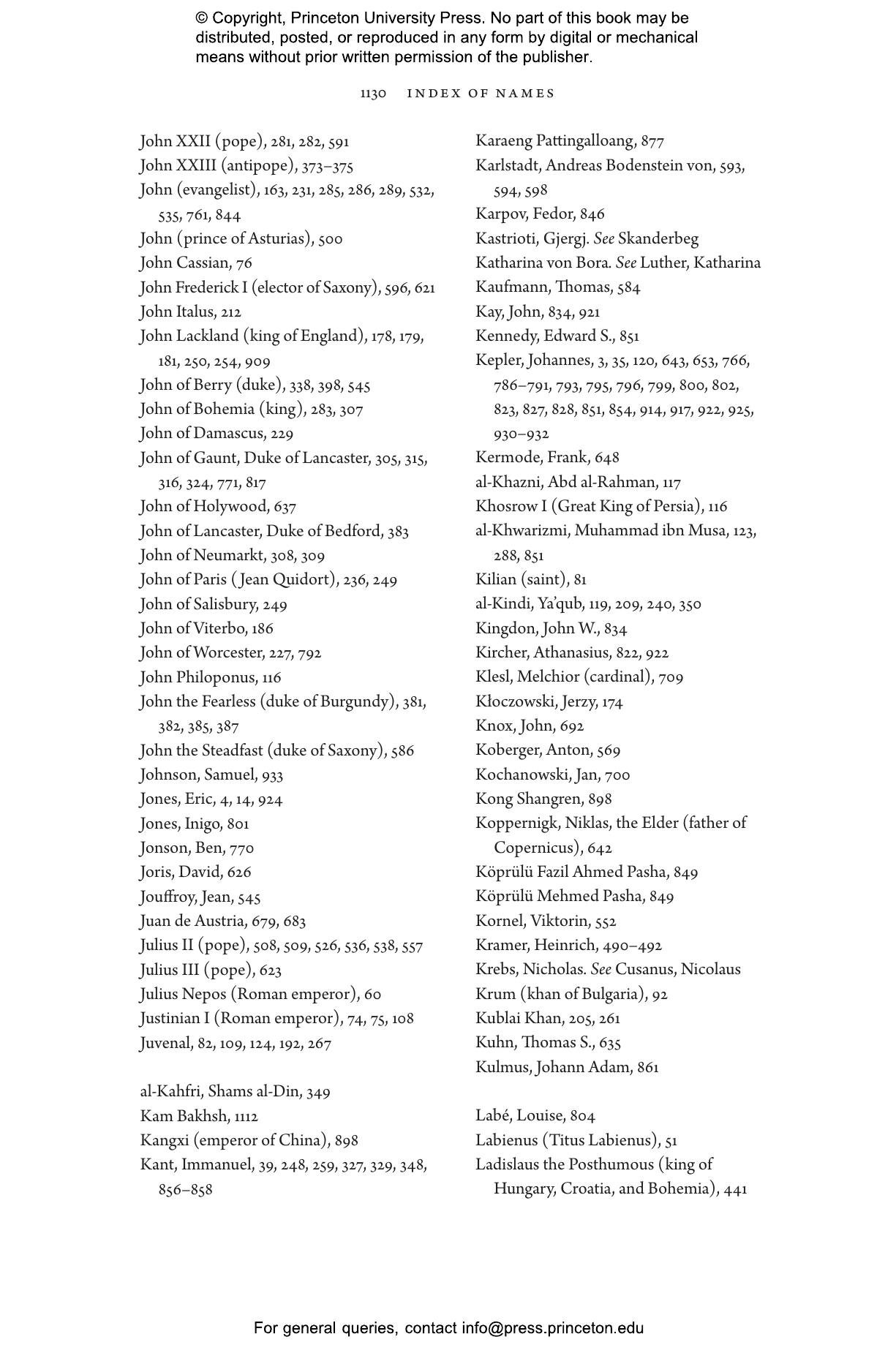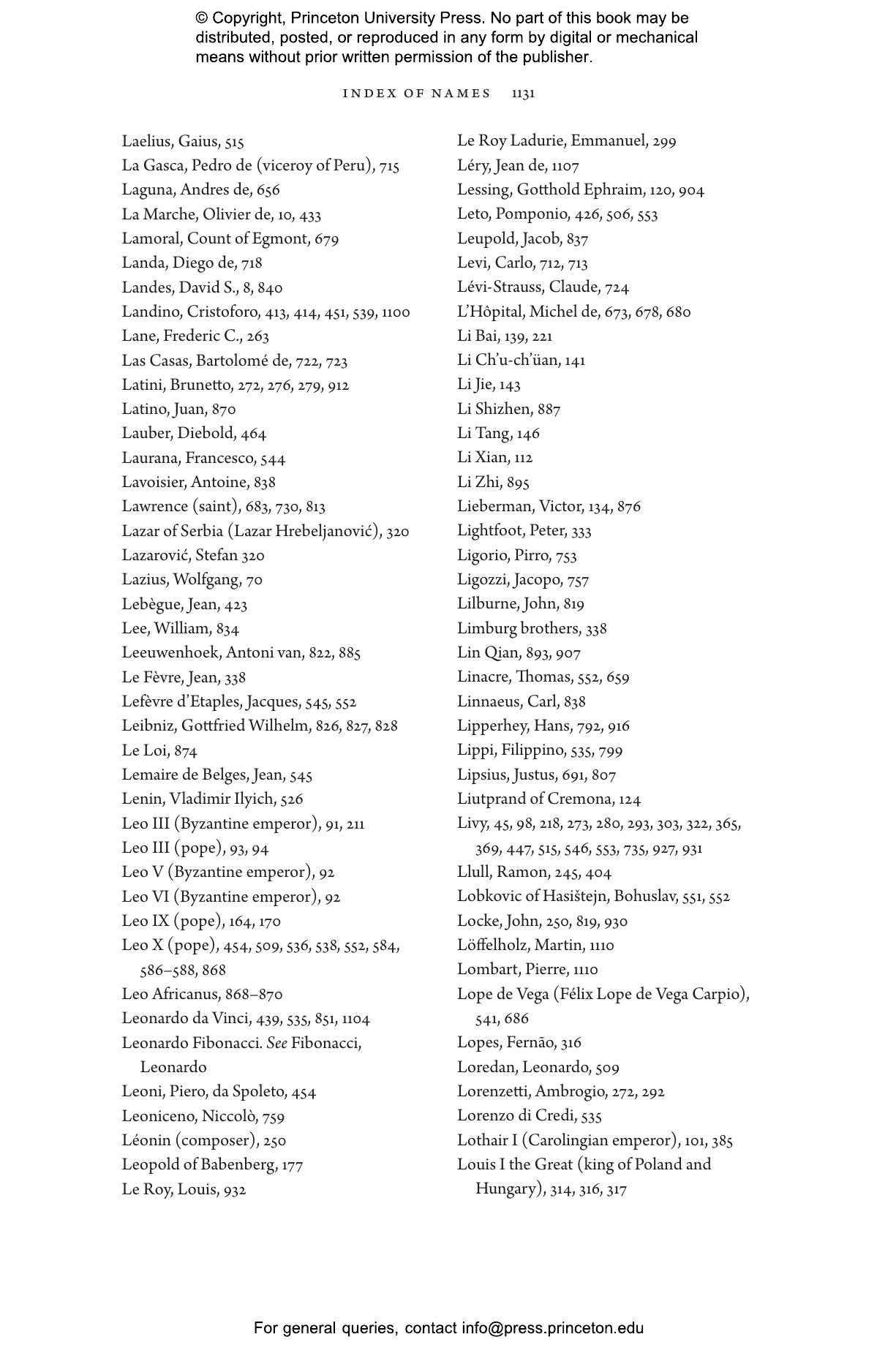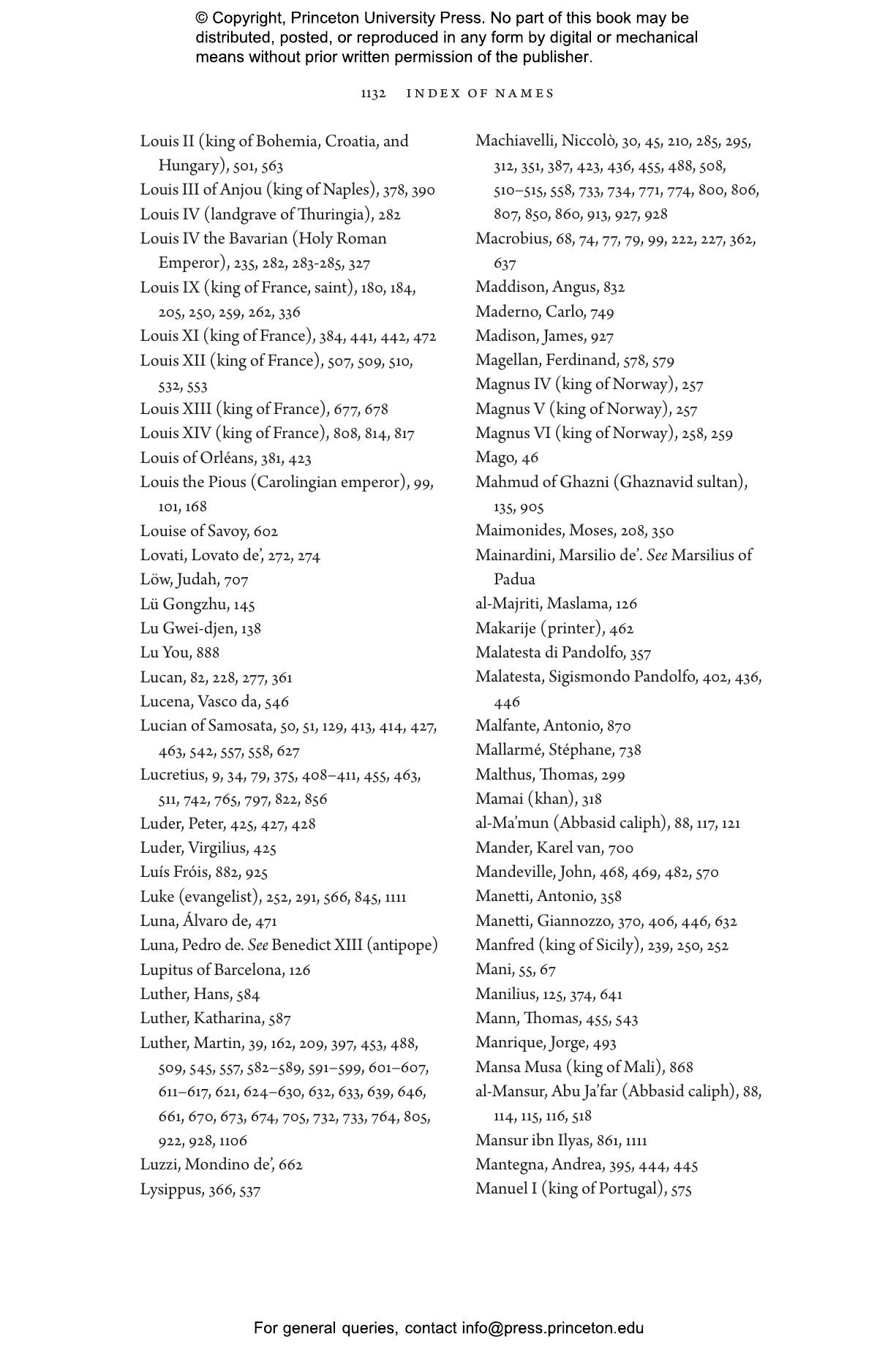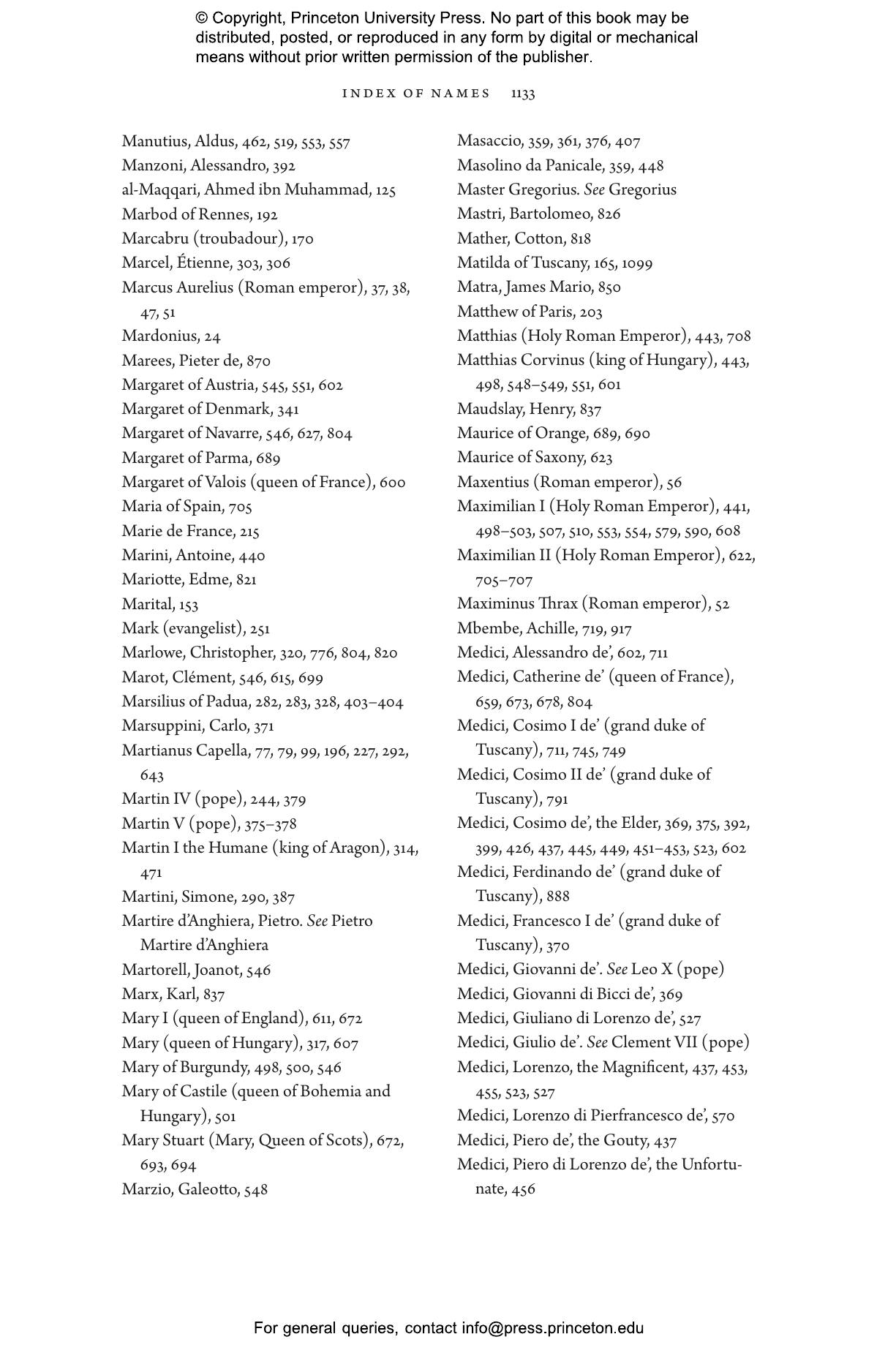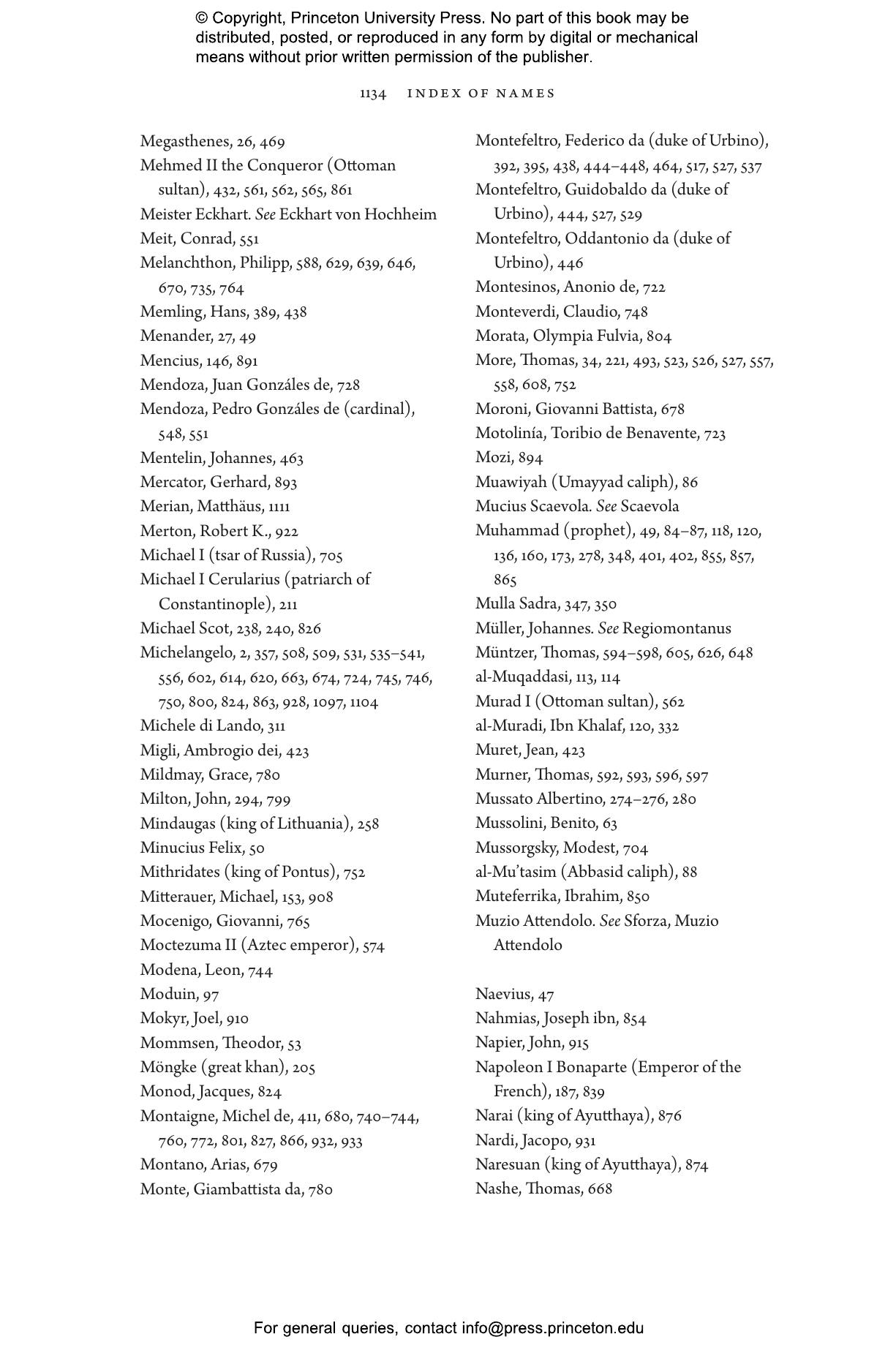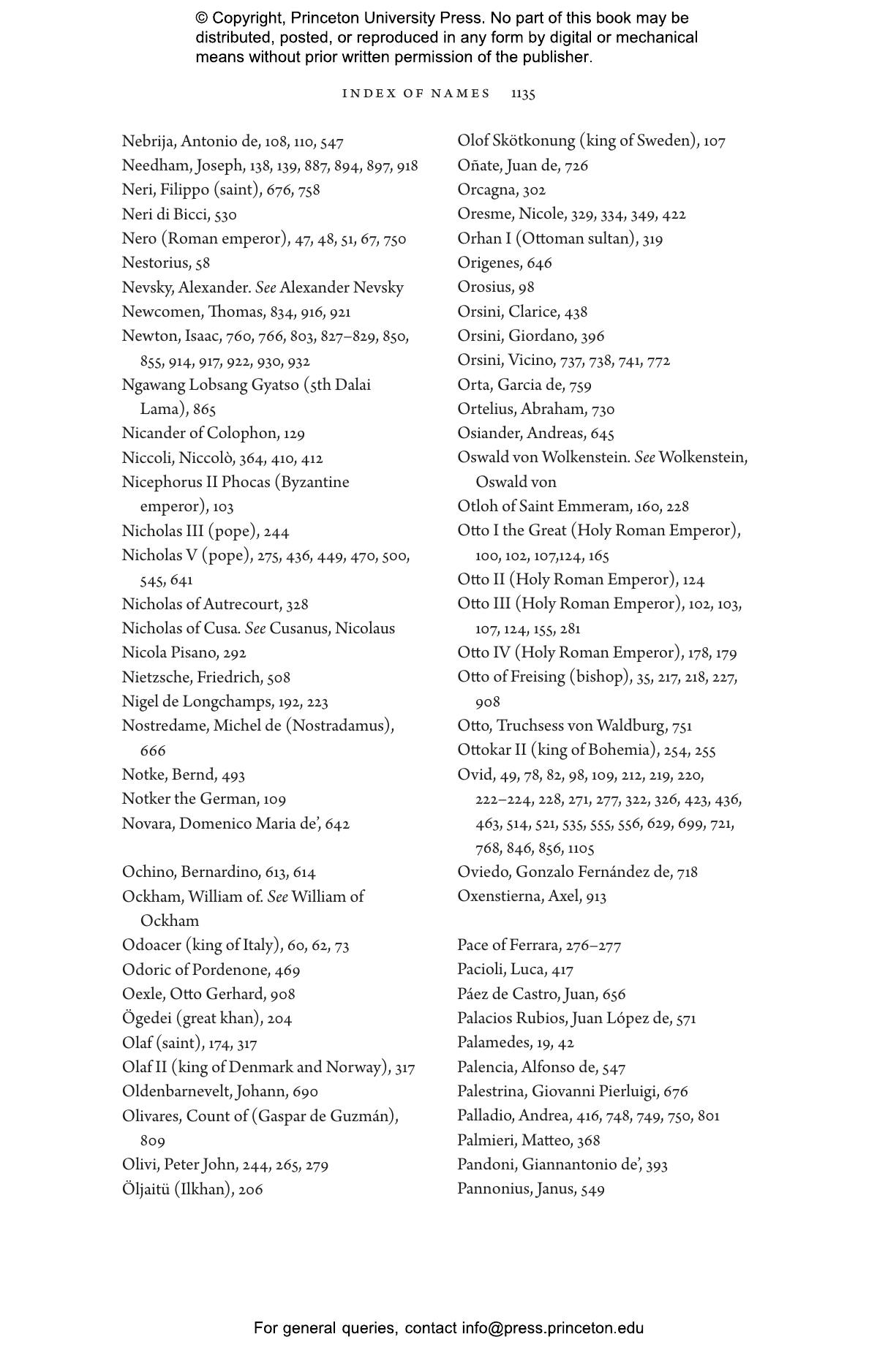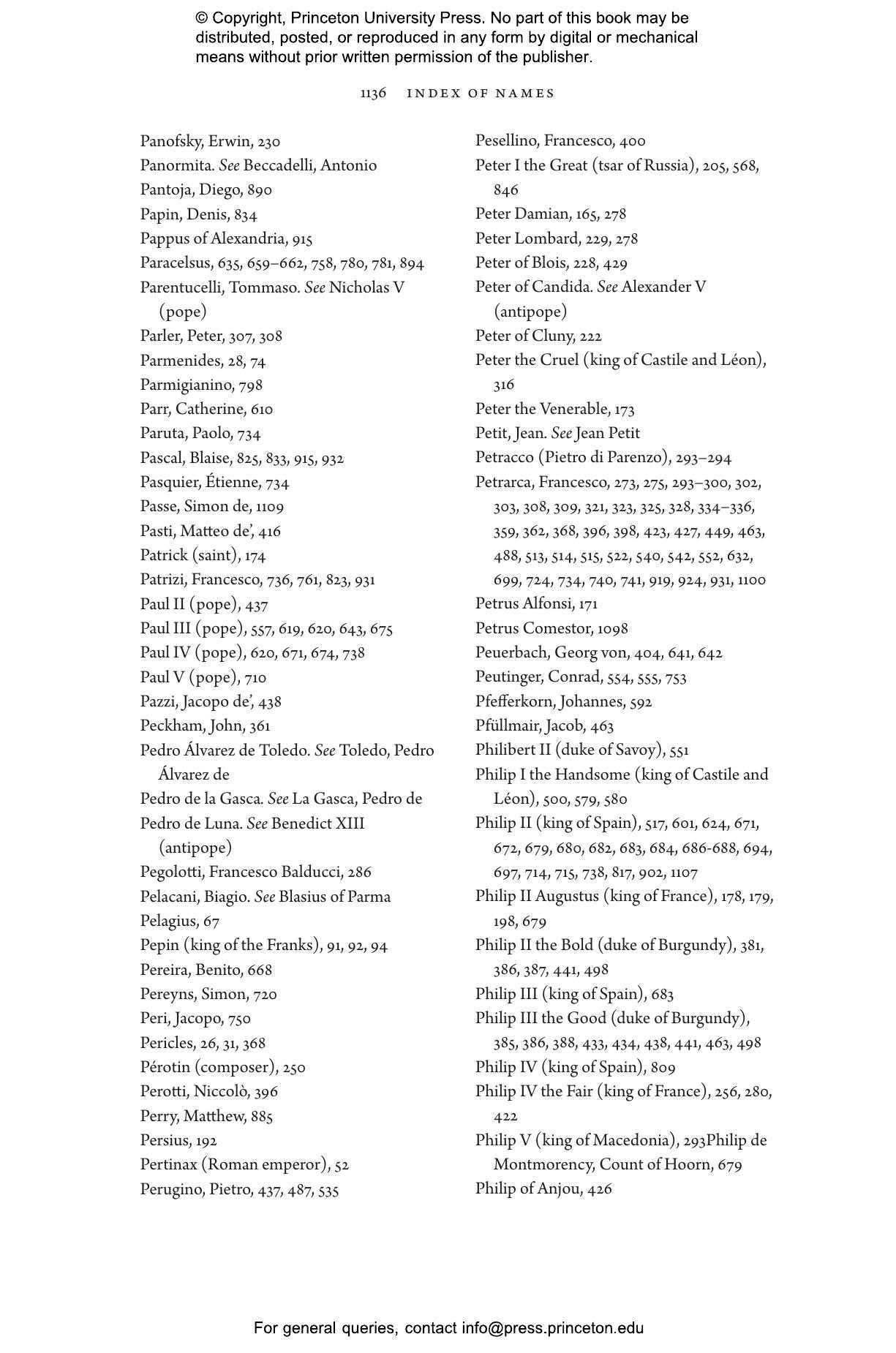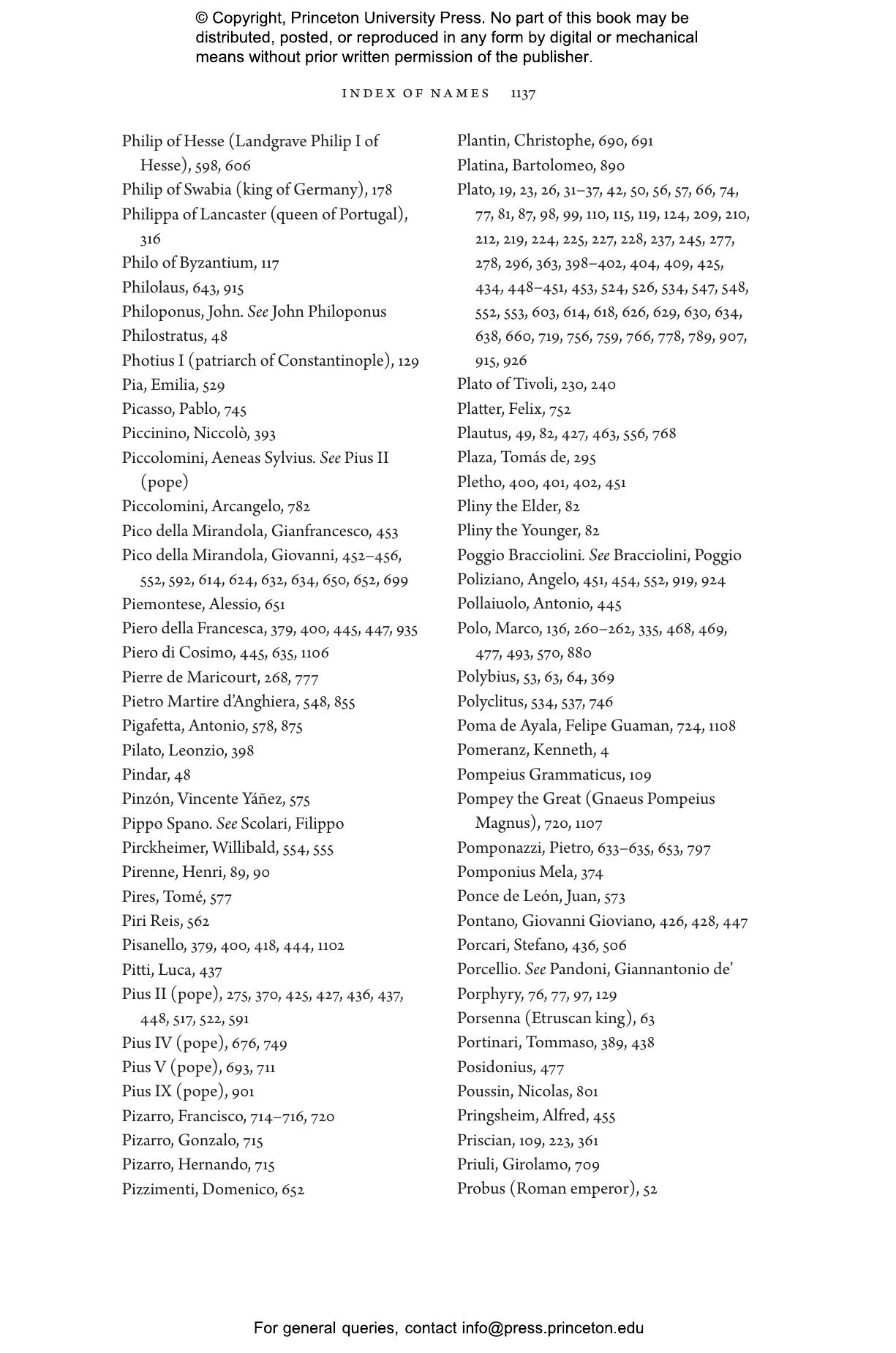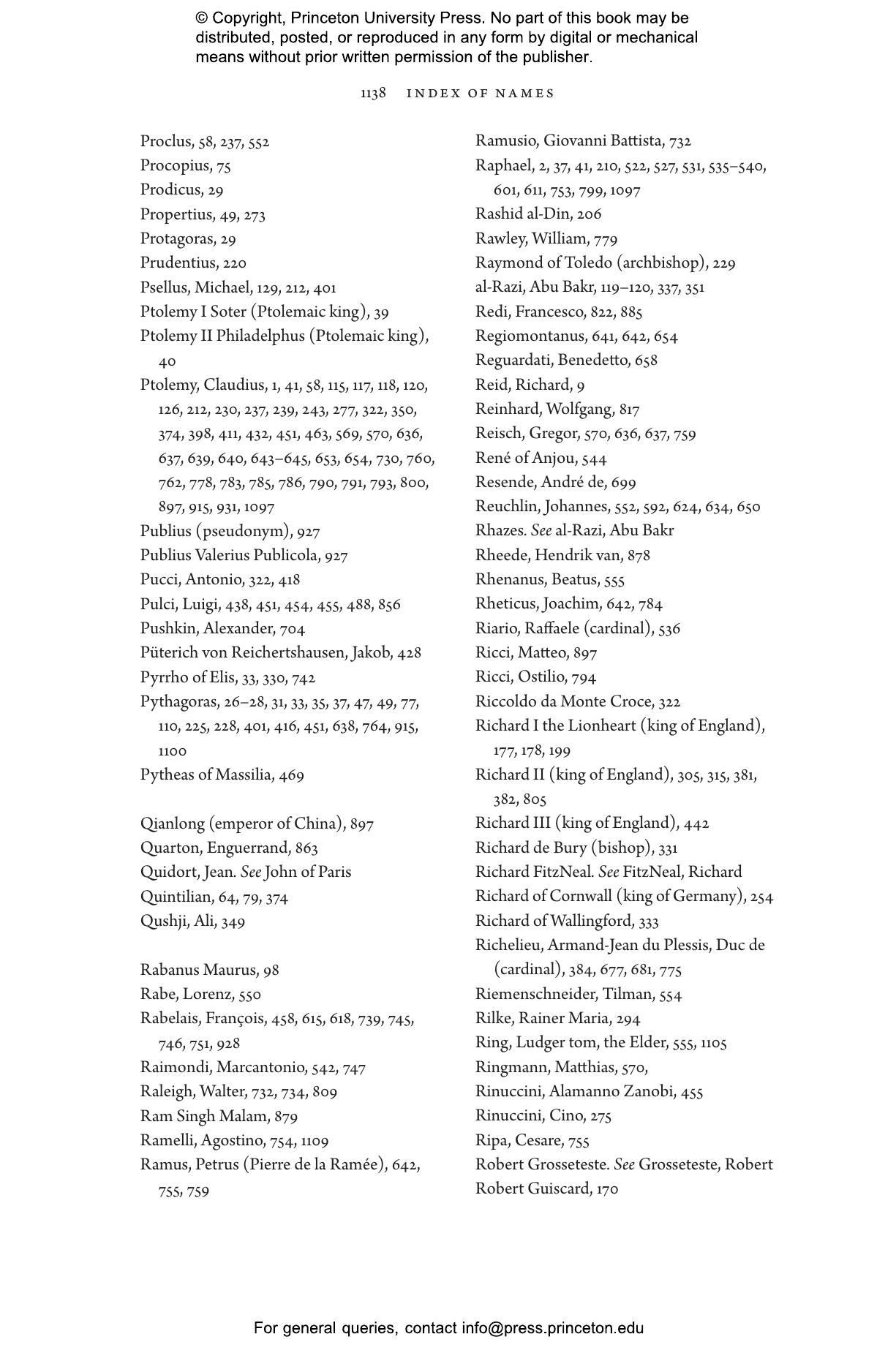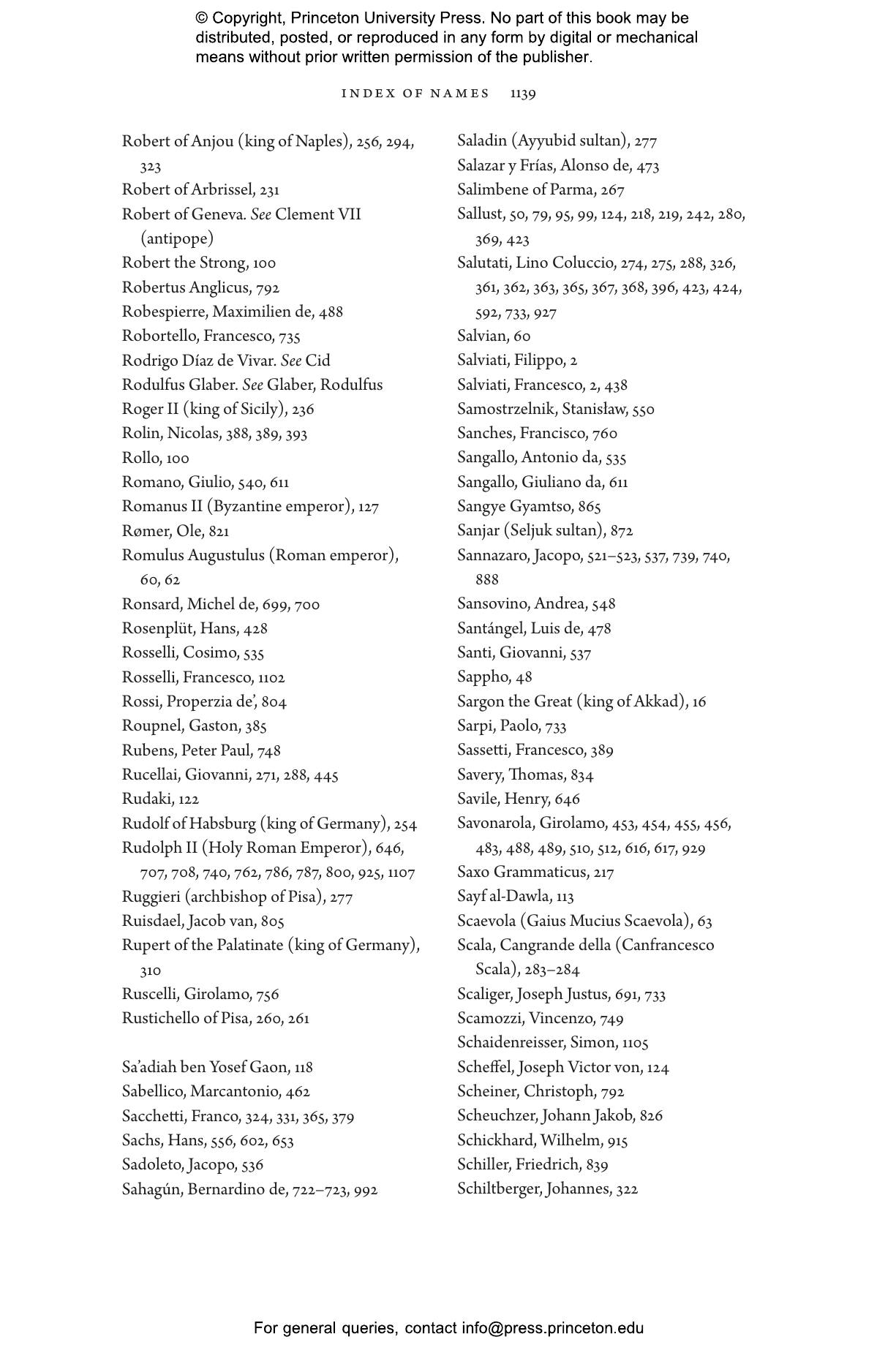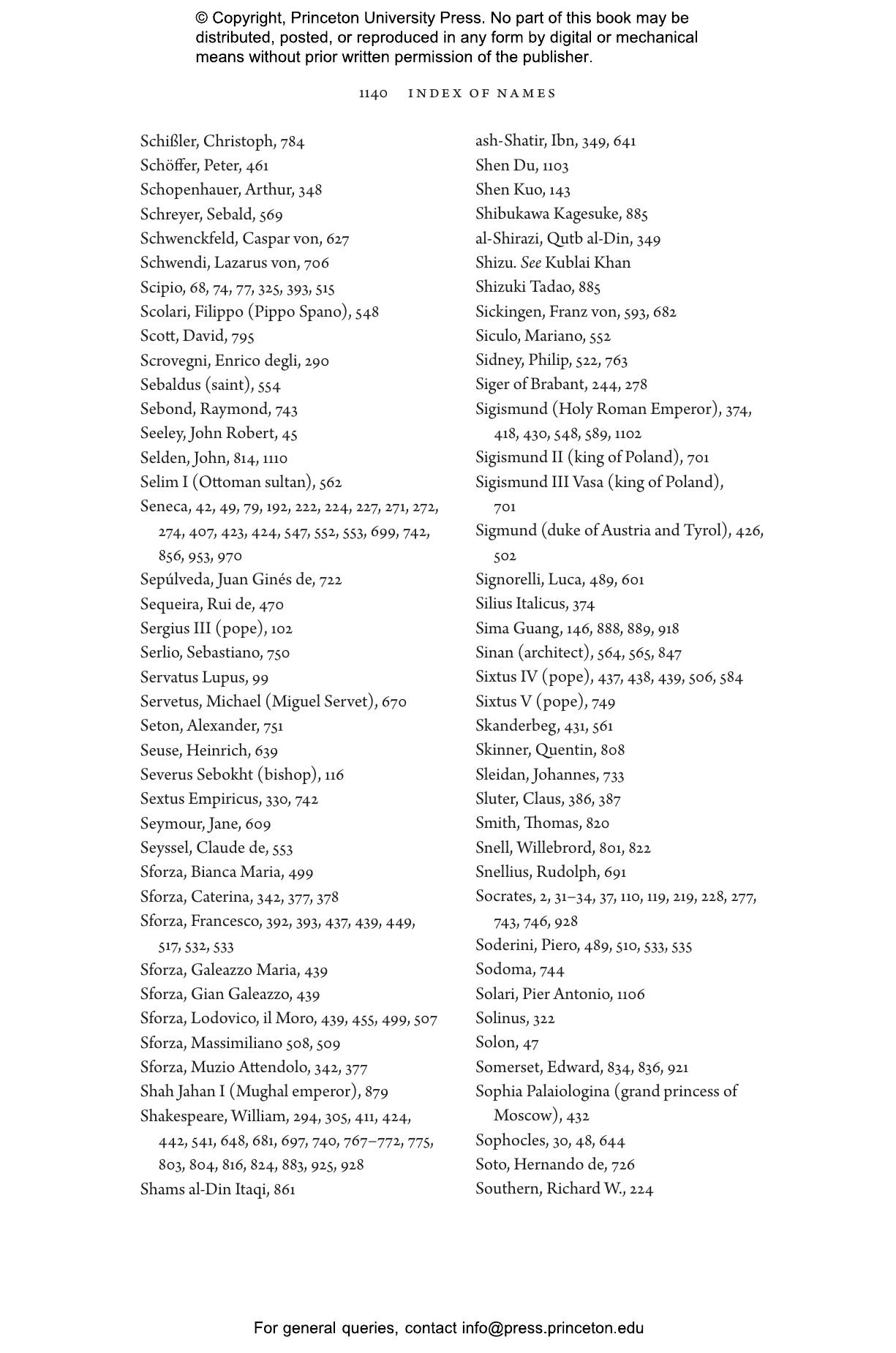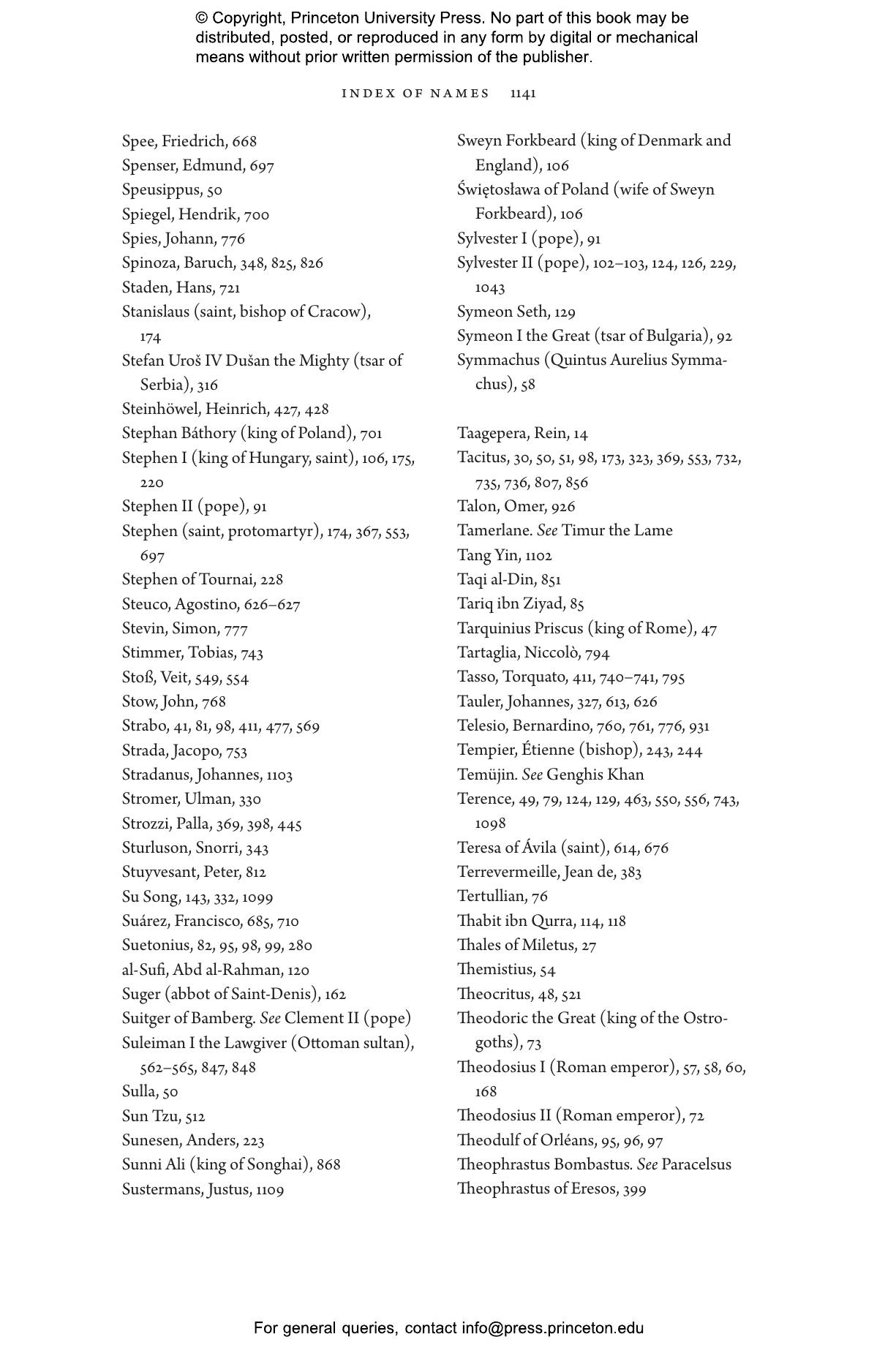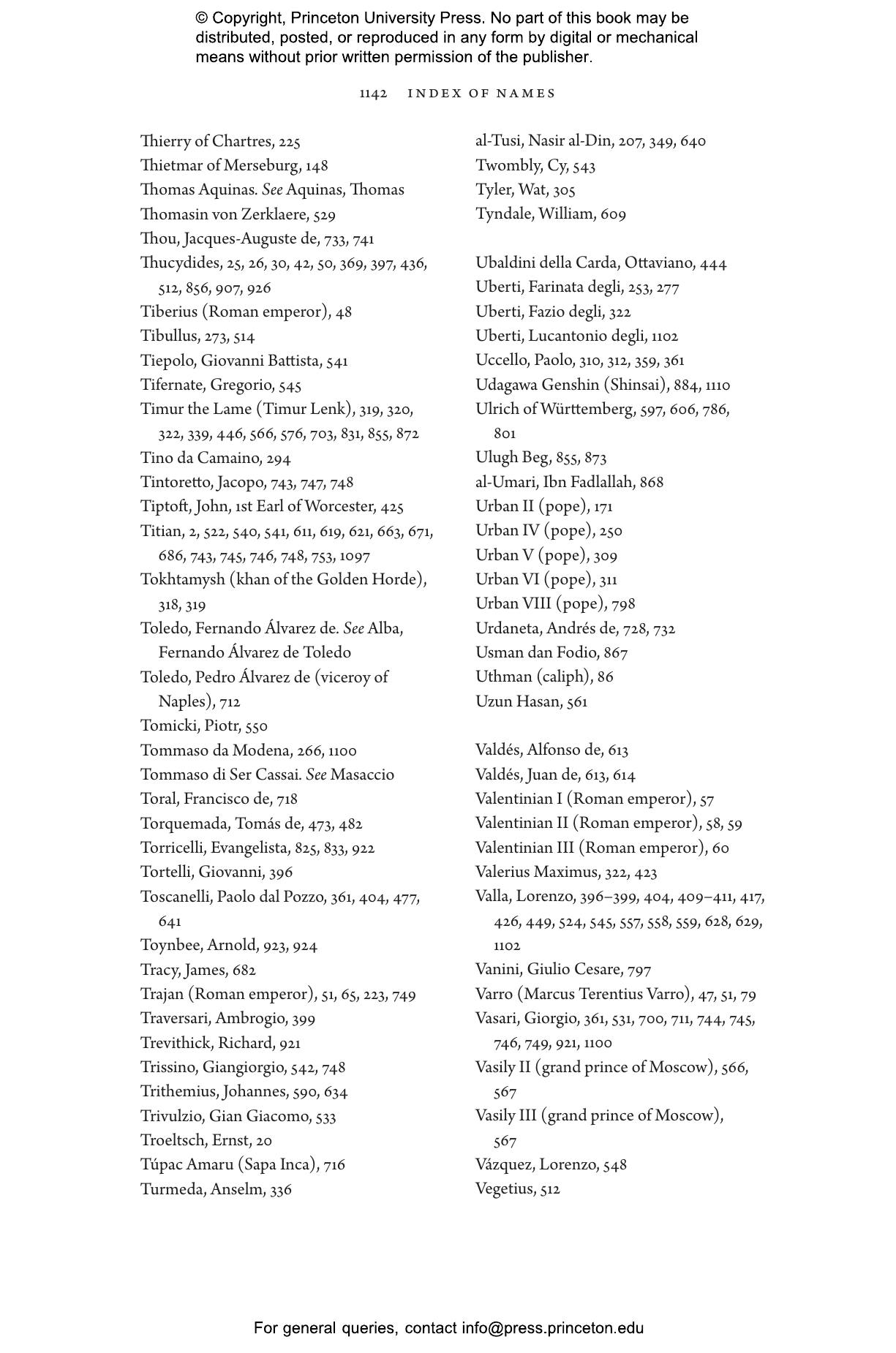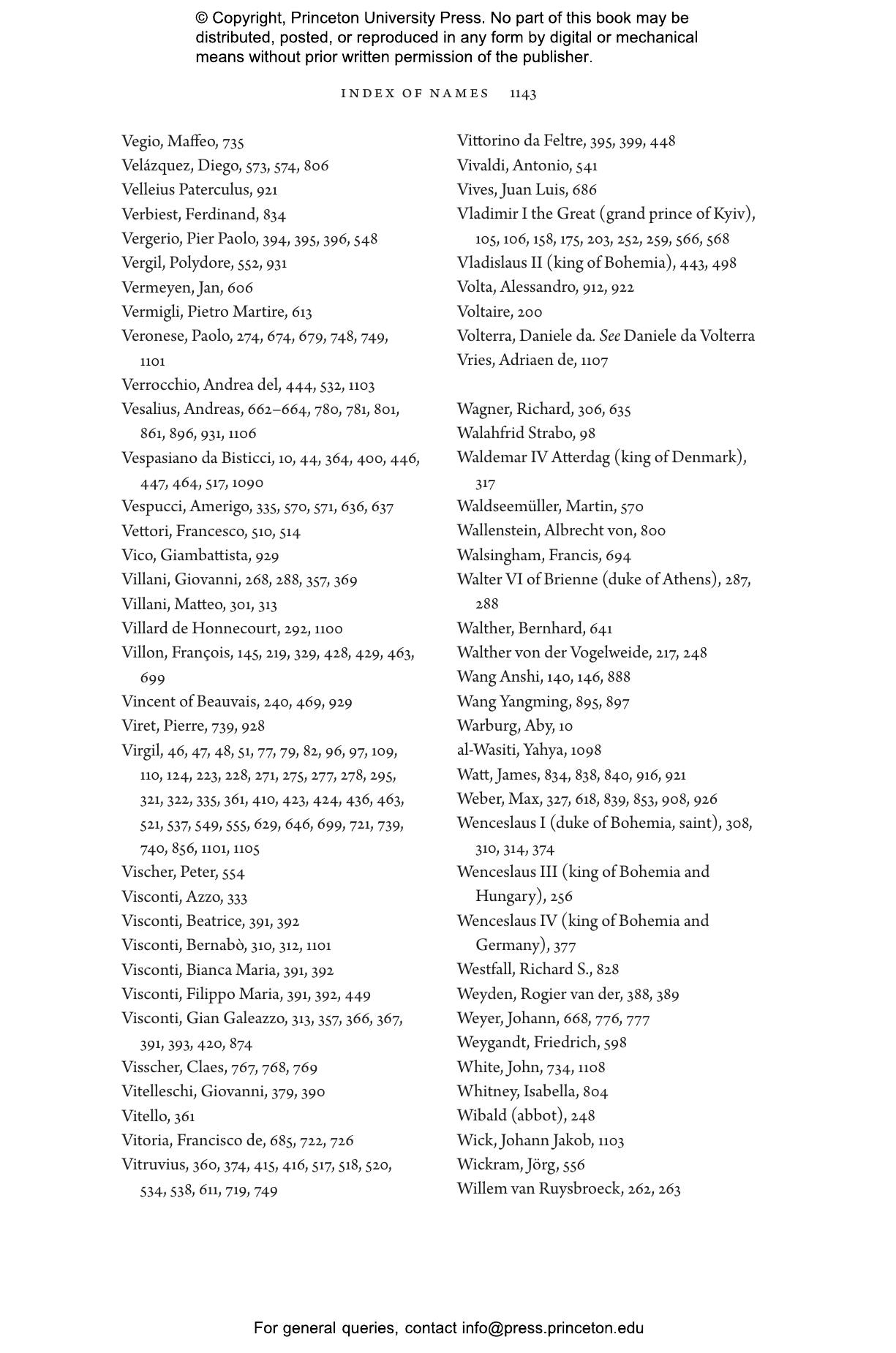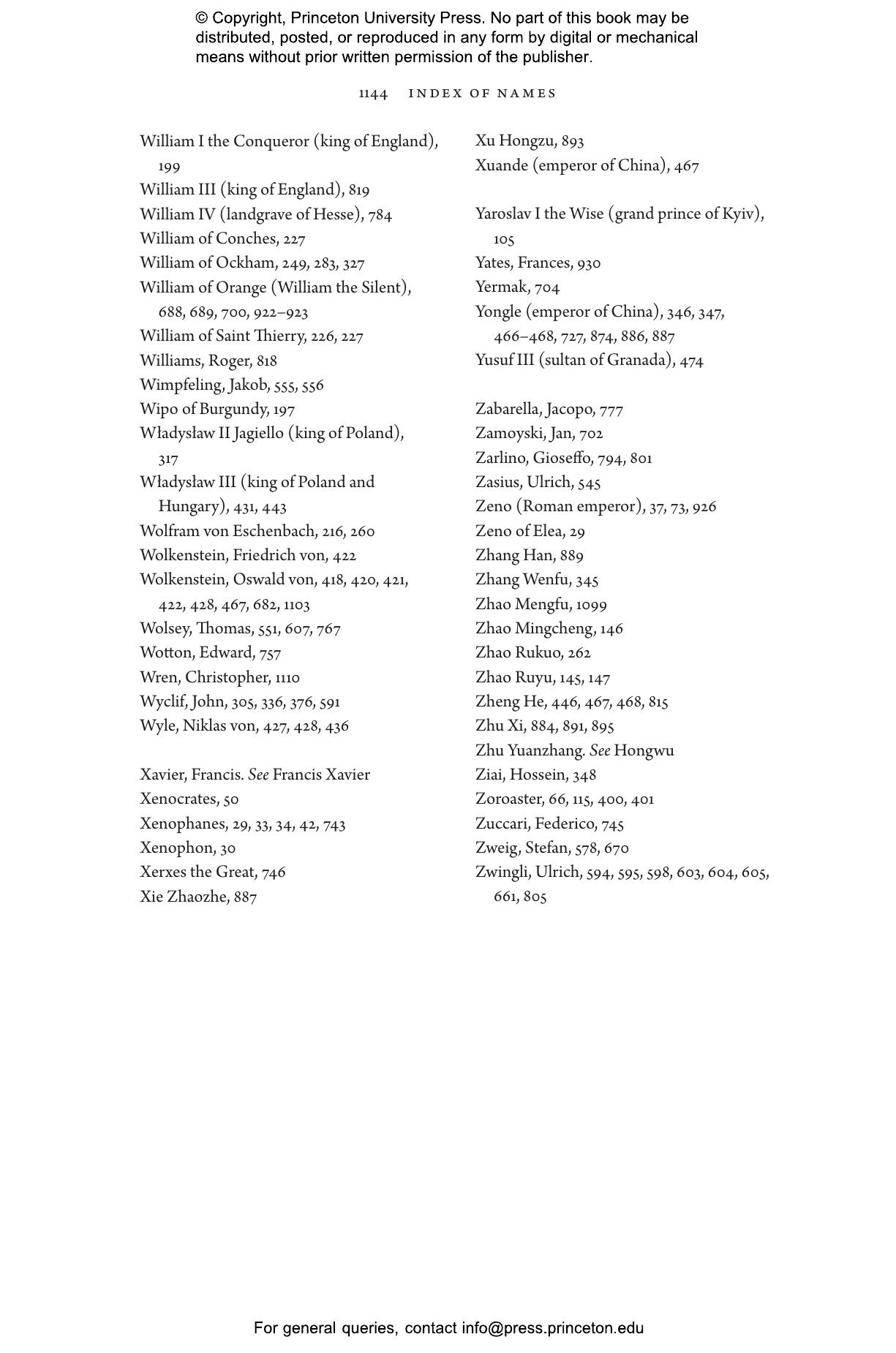The cultural epoch we know as the Renaissance emerged at a certain time and in a certain place. Why then and not earlier? Why there and not elsewhere? In The World at First Light, historian Bernd Roeck explores the cultural and historical preconditions that enabled the European Renaissance. Roeck shows that the rediscovery of ancient knowledge, including the science of the medieval Arab world, played a critical role in shaping the beginnings of Western modernity. He explains that the Renaissance emerged in a part of Europe where competing states and cities formed relatively open societies. Most of the eraâs creative mindsâfrom Leonardo da Vinci and Michelangelo to Copernicus and Galileoâcame from the middle classes. The art of arguing flowered, the basso continuo to intellectual and cultural breakthroughs.
Roeck argues that two revolutions shaped the Renaissance: a media revolution, triggered by Gutenbergâs invention of movable typeâwhich itself was a driving force behind the scientific revolutionâand the advent of modern science. He also reports on the dark side of the eraâhatred of Jews, witch panic, religious wars, and the atrocities of colonialism. In a series of meditative counterfactuals, Roeck considers other cultural rebirths throughout the first millennium, from the Islamic empire to the Carolingians, examining why the epic developments of the Renaissance took place in the West and not elsewhere. The complicated legacy of the Renaissance, he shows, encompasses the art of critical thinking as learned from the ancients, the emergence of the modern state, and the genesis of democracy.
Awards and Recognition
- A New Yorker Best Book We Read So Far
Bernd Roeck has been professor of modern history at the University of Zurich and director of the German Centre for Venetian Studies in Venice. He is the author of Florence 1900: The Quest for Arcadia, Civic Culture and Everyday Life in Early Modern Germany, and other books.
"Beautifully argued, an essential addition to the history and historiography of the Renaissance."âKirkus Reviews (Starred review)
"A thorough and wide-ranging history of the European Renaissance"âLibrary Journal
"The version of the Renaissance beloved of Pater or John Ruskin—a lyrical overture to beauty and communal order, refined by classical aestheticism—is, on this view, sentimental. Instead, the period marks a permanent alteration in what earlier scholars would have called ‘European man,’ forged through a new union of artisanal craft and intellectual ambition, and shaped by the competitive worlds its makers inhabited."âAdam Gopnik, New Yorker
âThe World at First Light is a work of enormous erudition and the fascinating product of a lifetime of scholarship. Everyone interested in the idiosyncratic history of Europe and the origins of the modern world should read it. Not because it would be beyond criticismâwhich major history book is?âbut because one can learn so much from studying it and from engaging with its many challenging claims.ââPeer Vries, author of State, Economy and the Great Divergence: Great Britain and China, 1680sâ1850s
âCombining a broad overview with vivid vignettes, Bernd Roeckâs emphasis on the modernity of the Renaissance gives him a good claim to be regarded as the Burckhardt of the early twenty-first century.ââPeter Burke, Emmanuel College Cambridge
"Bernd Roeck masterfully reimagines the epoch of the Renaissance, revealing a vibrant tapestry of global connections, intellectual revolutions, and cultural dialogues. A compelling book for anyone seeking to understand the enduring legacy of one of European history's most pivotal periods.â âAnja-Silvia Goeing, Harvard University
âThis superbly researched and brilliantly written new history helps us to understand how âthe grand dialogueâ with antiquity and Islamic cultures changed the world and contributed to shape the Western modernity. This magisterial book will undoubtedly leave its mark on Renaissance historiography.ââVéronique Ferrer, Université Paris Nanterre et Institut Universitaire de France
This publication has been produced to meet accepted Accessibility standards and contains various accessibility features including concise image descriptions, a table of contents, a page list to navigate to pages corresponding to the print source version, and elements such as headings for structured navigation. Appearance of the text and page layout can be modified according to the capabilities of the reading system.
Accessibility Features
-
WCAG v2.2
-
WCAG level AA
-
Table of contents navigation
-
Single logical reading order
-
Short alternative textual descriptions
-
Print-equivalent page numbering
-
Landmark navigation
-
Index navigation
-
Epub Accessibility Specification 1.1
-
ARIA roles provided
-
All non-decorative content supports reading without sight
-
No known hazards or warnings


